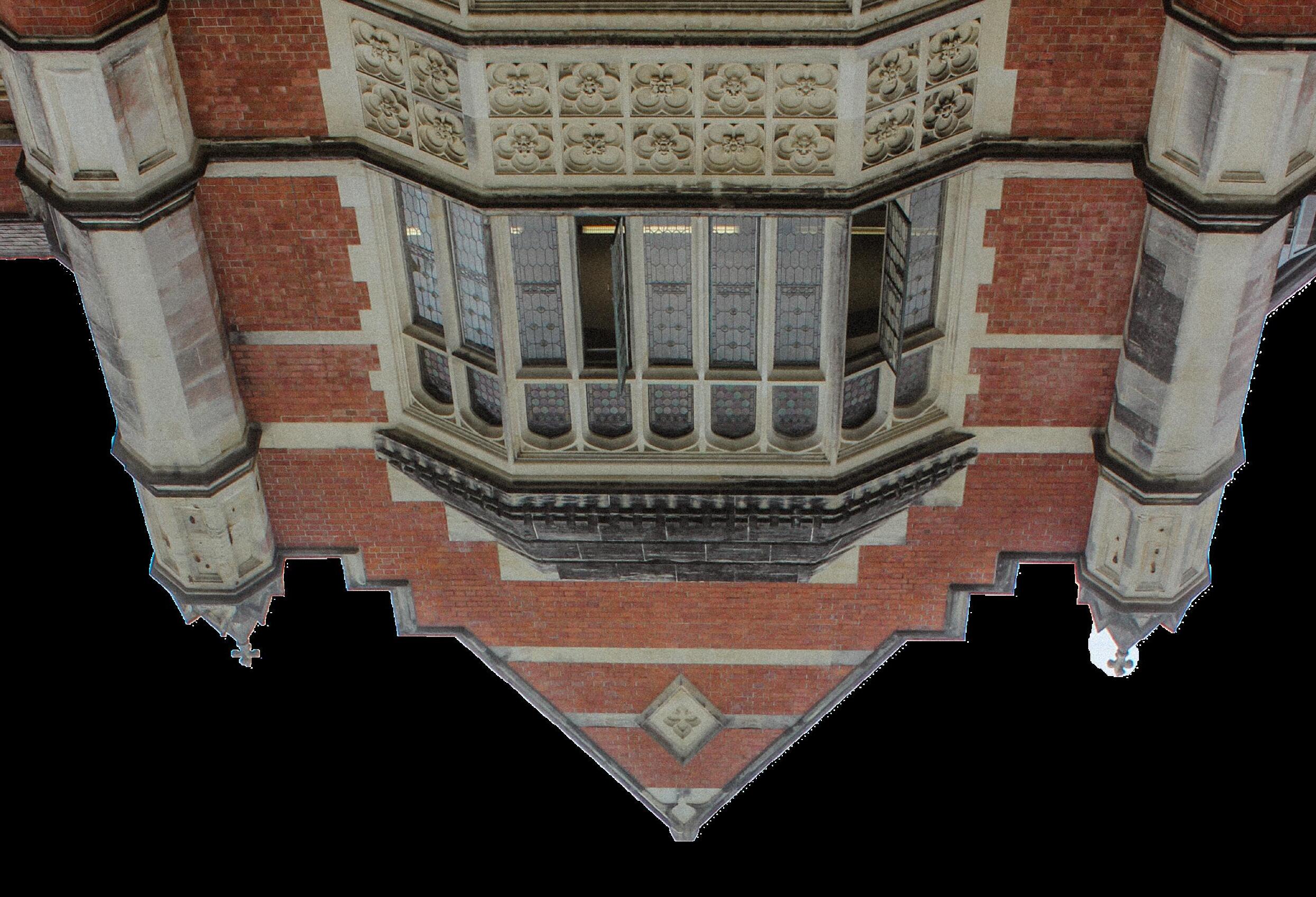
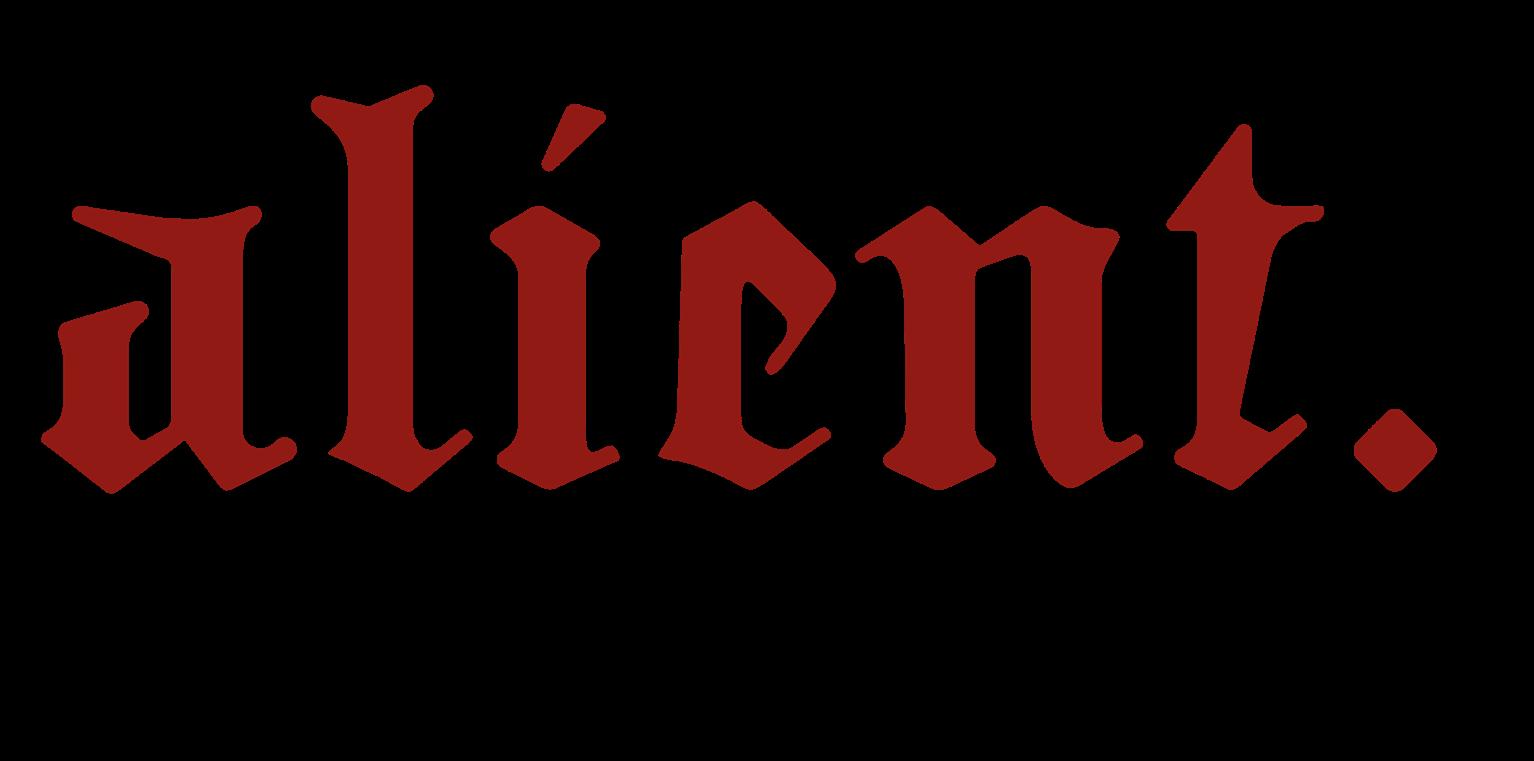
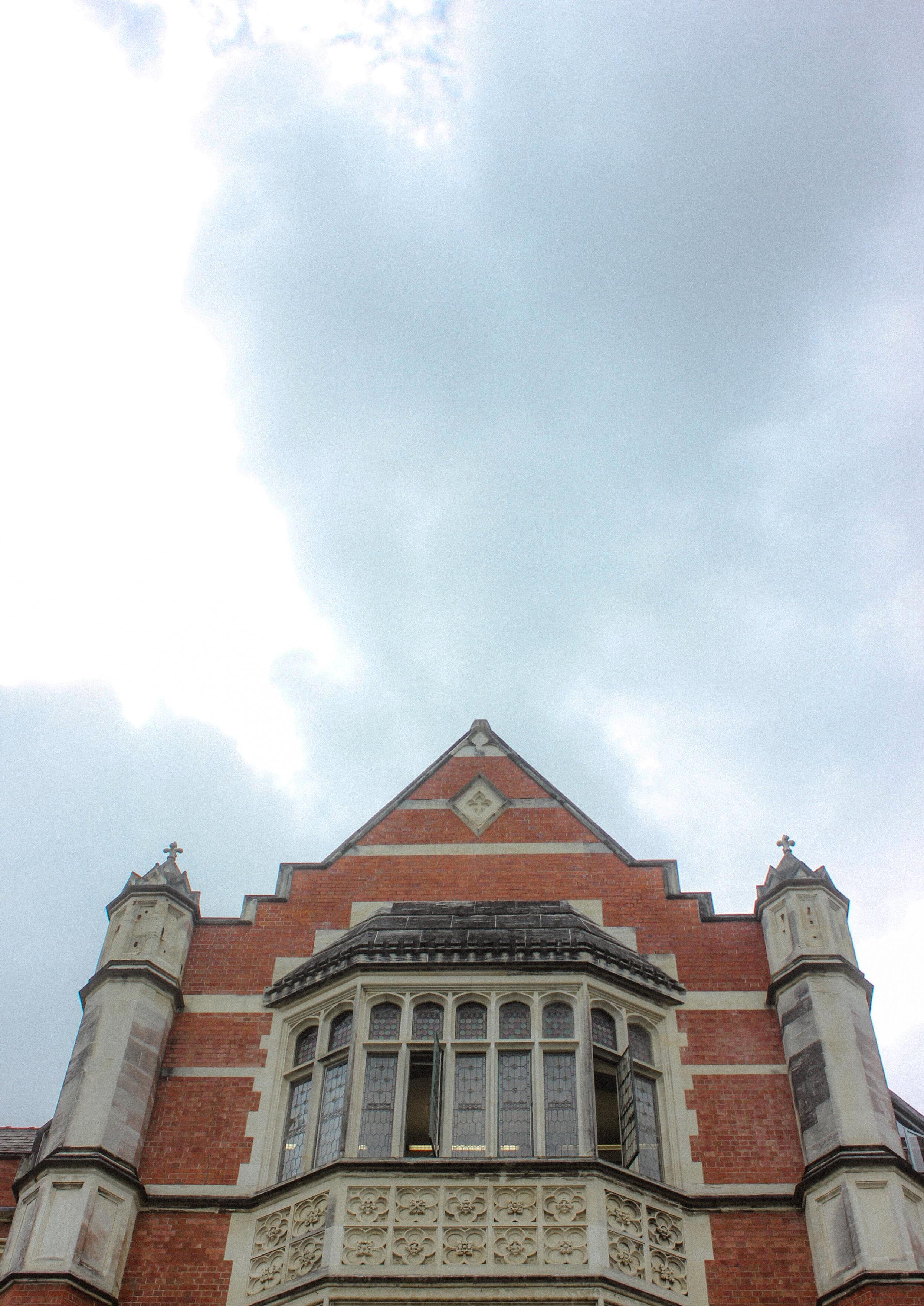
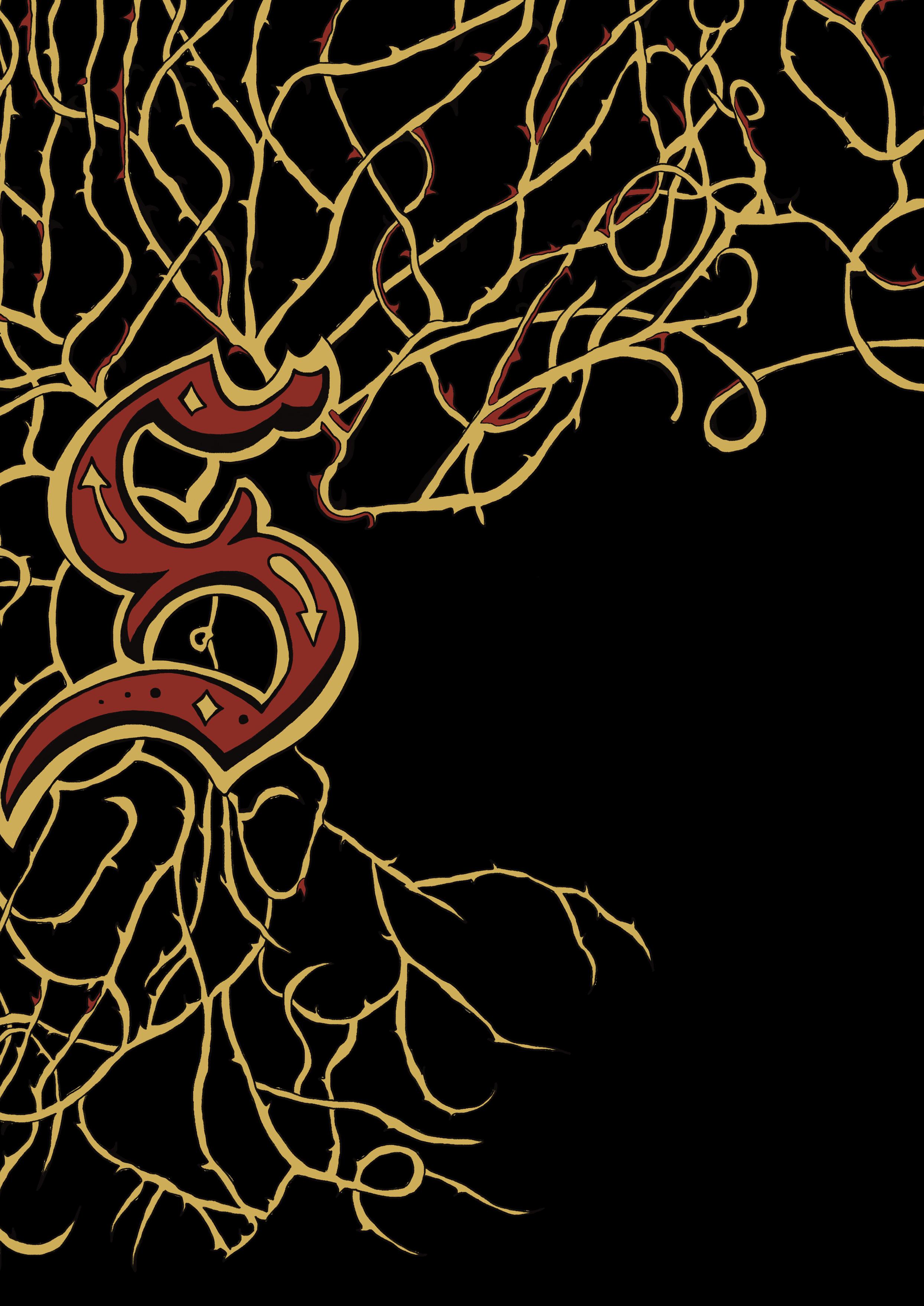
ACADEMIC Issue 03 | Volume 87 | 11.03.2024
Mauatua
So You're
Flynn
Yeesh,
Sean
Out. What Now?

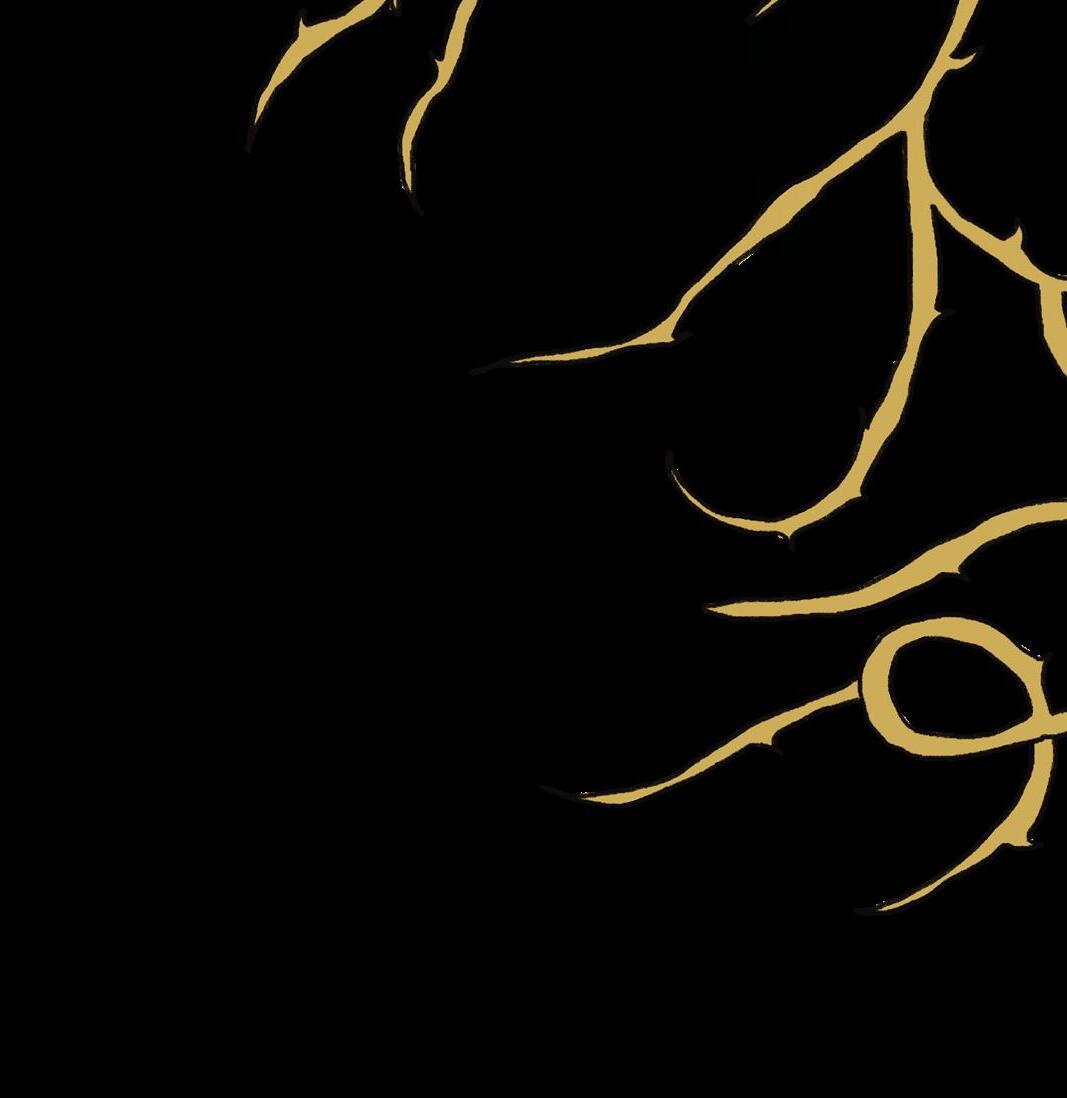
at salient.org.nz.
complaints
Complaints regarding the material published in Salient should first be brought to the Editor in writing (editor@salient. org.nz). If not satisfied with the response, complaints should be directed to the Media Council (info@mediacouncil.org.nz).
about us
Salient is published by, but remains editorially independent from, the Victoria University of Wellington Student's Association (VUWSA). Salient is funded in part by VUWSA through Student Services Levy. Salient is a member of the Aotearoa Student Press Association (ASPA).
The views expressed in Salient do not necessarily reflect those of the Editor, VUWSA, or the University. find
Twitter @salientmagazine
Facebook fb.com/salientmagazine
Instagram @salientgram
www.salient.org.nz
page 02 contents rārangi kōrero in this issue EDITORIAL | ĒTITA LETTERS | RETA GIGS & EVENTS THE NEWS | KAWEPŪRONGO In Praise of PASI ARTS & CULTURE | AHUREA PODCASTS | KŌNAE IPURANGI COLUMNS | TĪWAE POETRY & PROSE | AUAHATANGA HOROSCOPES PUZZLES | PANGA
Fa’ara-Reynolds (she/they)
Burnt
Rodger (he/they)
that's
shame
a
Dougdale-Martin (they/he) On Bone Phoebe Pierard (she/her) Behind the Podium Phoebe Robertson (she/her) & Dr. Nicola Hyland (she/her) 03 04 05 06 12 15 18 22 23 25 27 29 31 35 36
us
Learning Paycheck to Paycheck Pierson Palmer (he/him) 26
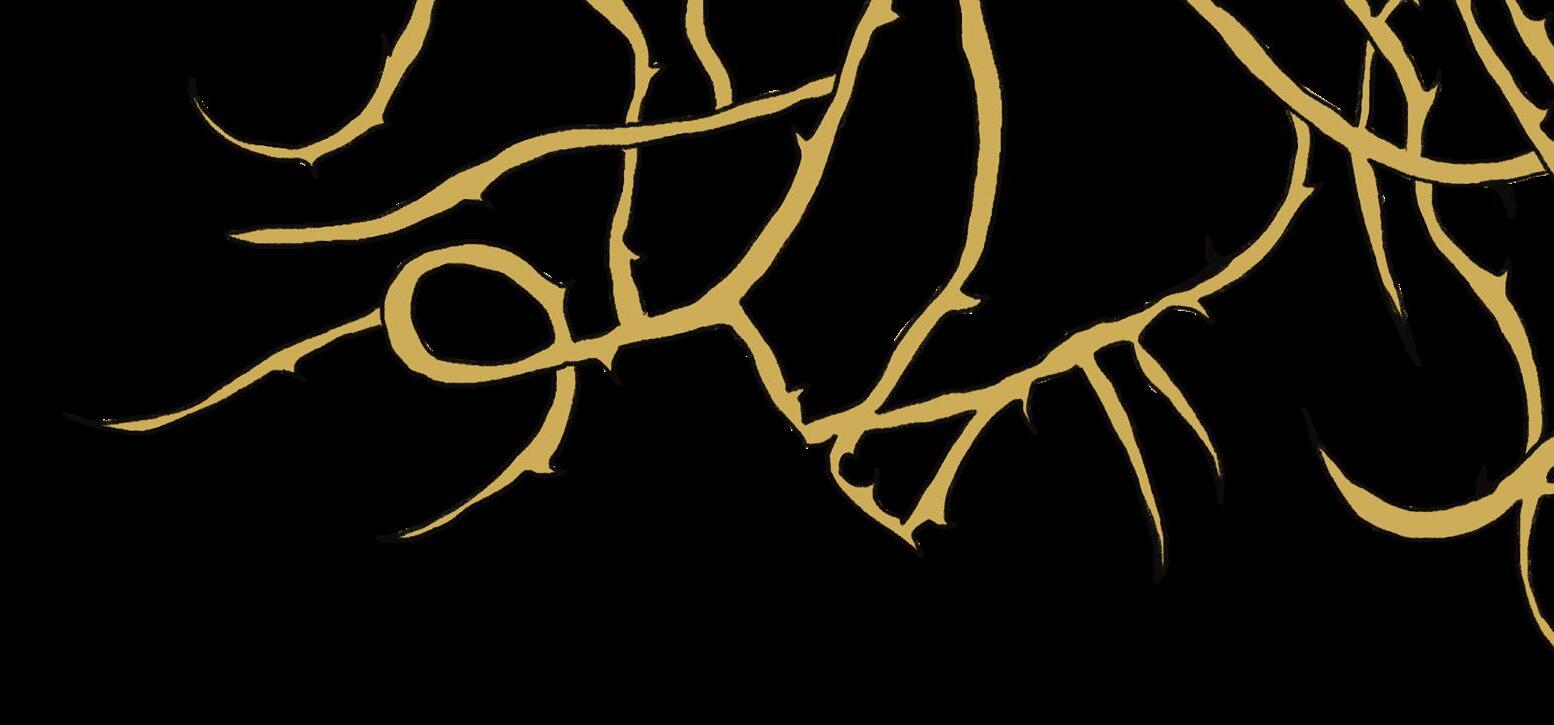

Editorial
academic
This week Salient challenged Parliament—who seem to fear student media. Maybe this perception is due to Nicola Willis being chased out of the Hub recently (keep running, Nicola). Regardless, we can all agree that The Spinoff's proposal for MPs to live together in a single apartment complex is the best political theory ever conceived. Perhaps the authors, Madeleine Chapman and Stewart Sowman-Lund, should become our Prime Minister and Deputy Prime Minister instead. They would likely accomplish more and not try to make assault rifles fashionable again.
In this issue of Salient, Mauatua Fa'ara-Reynolds expresses her love for Te Herenga Waka’s Pacific Studies programme, Flynn Rodger teaches students how to recover from burnout, and Sean DougdaleMartin shares a story of a student calling him ugly. Phoebe Pierard delves into the intricate world of scrimshaw (and university funded trips to Melbourne), Dr. Nicola Hyland tells us whether lecturers really gossip about their students, and Pierson Palmer explains the connection between finances and academic performance—something that we can all relate to. And in the Arts & Culture section, me and Stephen Woods rank Aotearoas 'Big Things.'
bird of the week
Karure

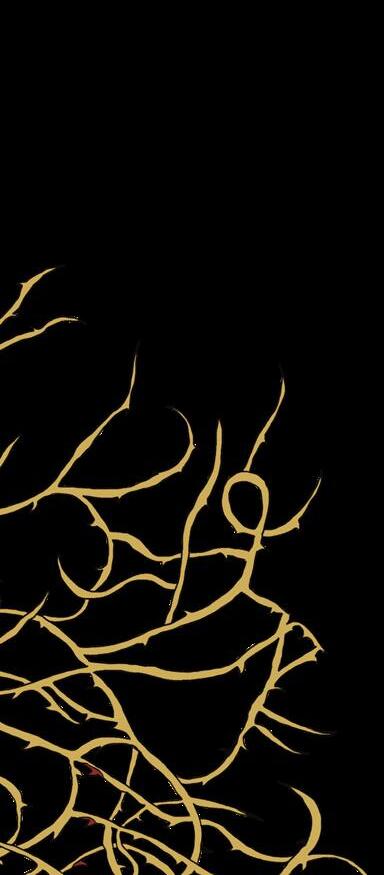
Enjoy this issue, everyone. And don't forget, the under 25 Snapper card concession is cheaper than the tertiary one. It also only takes 10 seconds to sign up for.
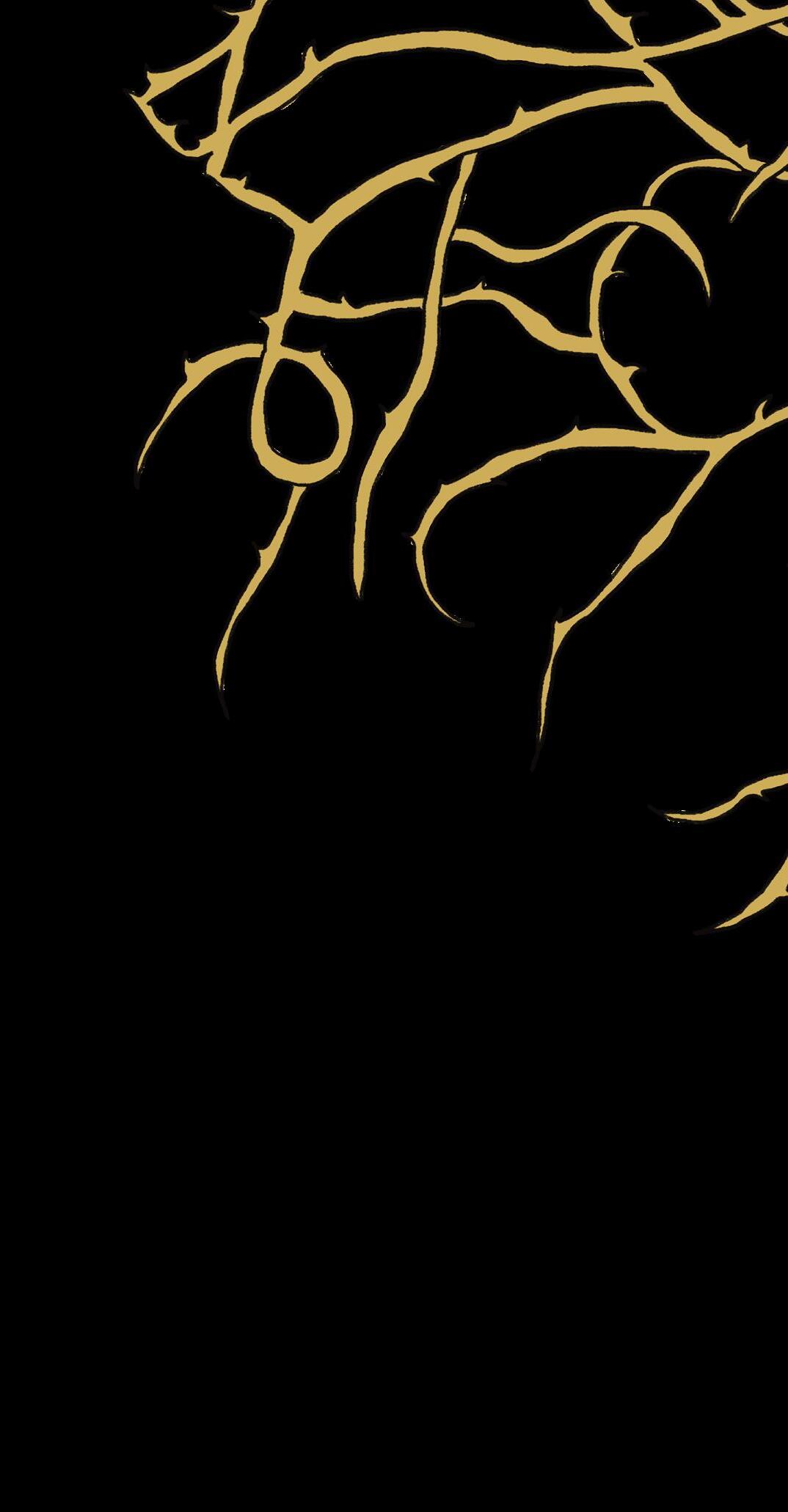 Phoebe Robertson Editor in Chief
Phoebe Robertson Editor in Chief
The Karure, also known as the Chatham Island black robin or Kakaruia, holds a significant place in New Zealand's conservation history. This small bird, endemic to the Chatham Islands, faced near-extinction in the late 20th century, with only five individuals left. Through dedicated conservation efforts, particularly thanks to the heroic actions of "Old Blue," the population made an incredible comeback. With its striking black feathers and resilient nature, the Karure has become a symbol of triumph over adversity. This heartening success story highlights the crucial role of constant conservation efforts and demonstrates how coming together can save a species from disappearing forever, ensuring the protection of biodiversity for future generations on the Chatham Islands.

ētita
page 03
LOVE
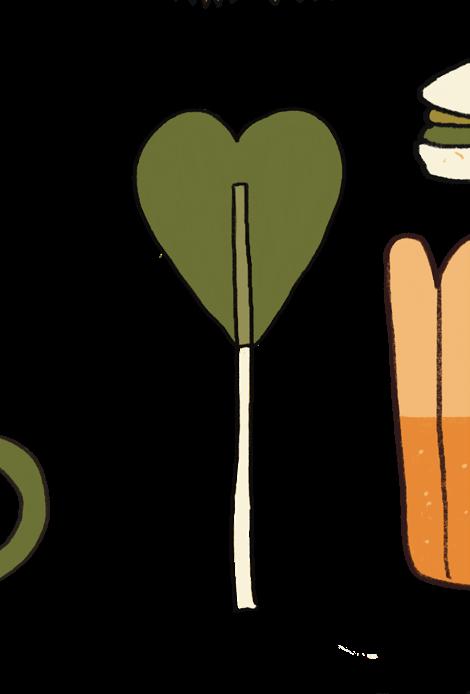
Creative Writing Competition
's creative writing competition has officially started! This year, there will be two prizes of $100 each for the top entries in the prose and poetry divisions. Guest judged by Sue Orr and Cadence Chung. Entries close on April 15th, 2024 and should be emailed to org.nz) for more information including word counts.



Sodoku Lovers
As a sudoku lover myself, I was immensely disappointed to find out that not one but TWO of last week's sudoku's were unsolvable. Our online generator was clearly not up to scratch and we have (hopefully) fixed the problem.
Lots of love, Kate the Designer xx

Love your work… however
Join a Gamelan Group!
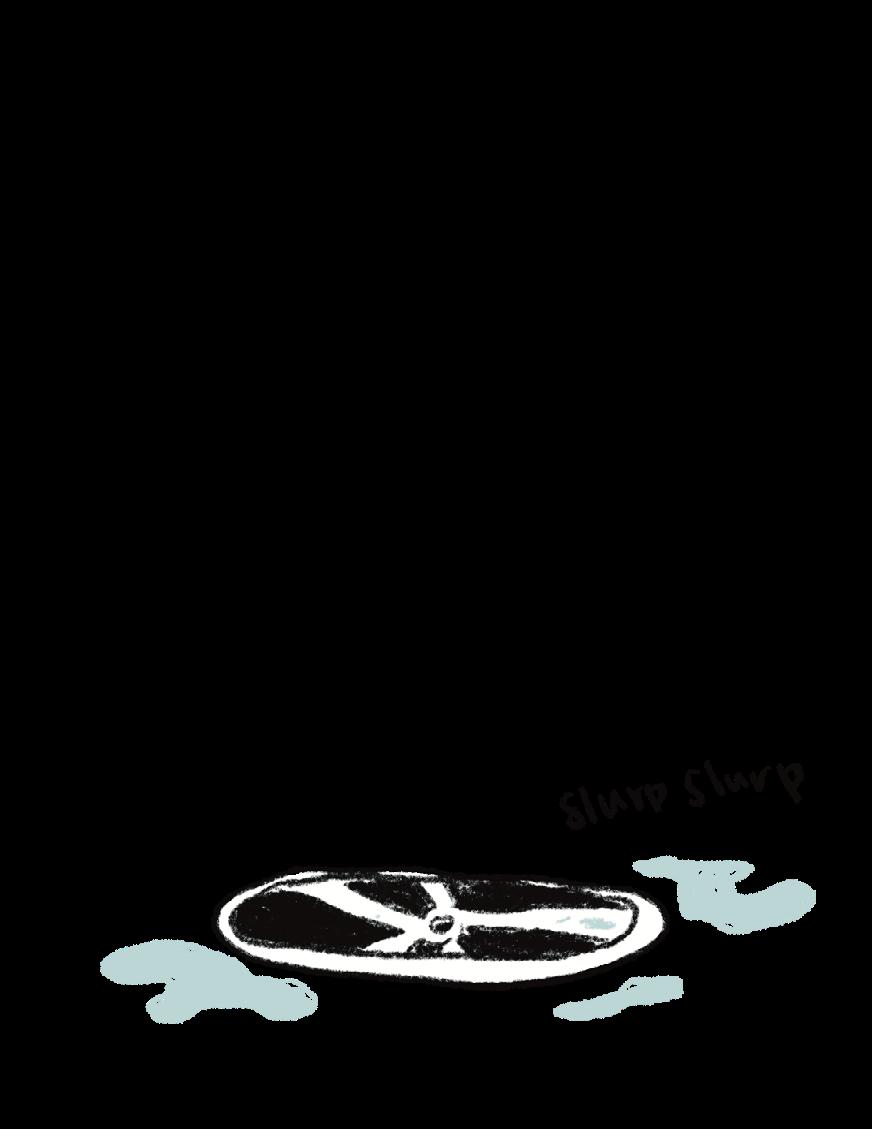
What’s going on guys?? It’s been two weeks and I haven’t seen hot takes in the hub yet. It was my favourite part of the week and you’ve taken it from me! I loved seeing the luke warm and uncontroversial takes from the Kelburners. Please make this right and bring back hot takes in the hub.

No previous experience is necessary to get groovy and learn a new instrument! Gamelan Taniwha Jaya is hosting an intro workshop on the 13th March from 6pm-8pm in MS330 at the NZ School of Music. More info at www.gamelan.org.nz
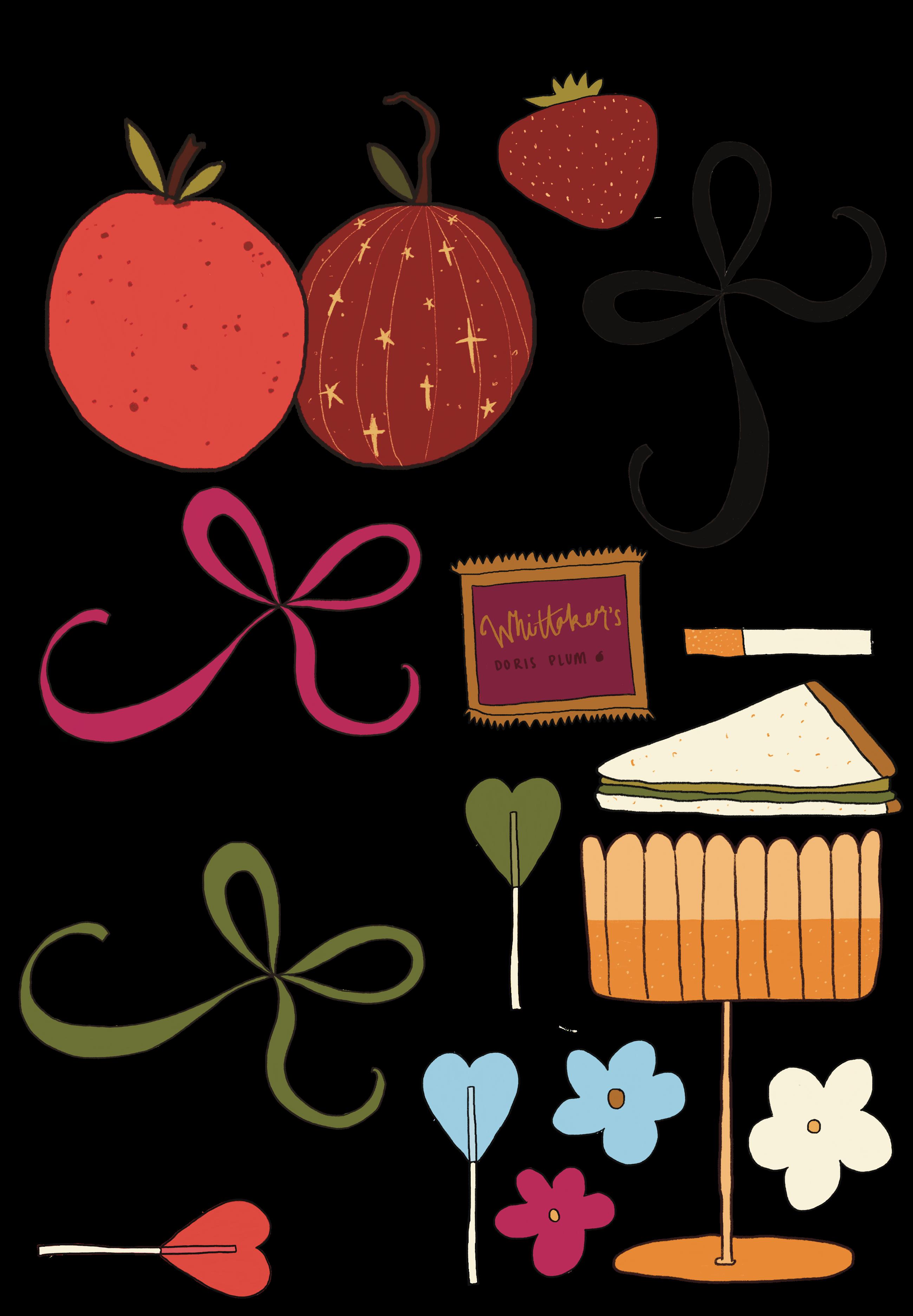
Sincerely literally everyone


Share your thoughts
Got a hot take on Salient or just want to stir the pot? Send your love letters to letters@salient.org.nz to have them published every week.

page 04

Enjoy our small, lovingly curated selection of gigs.
WED | San Fran | 8pm
Eyegum (Free) Wednesdays: Milk Tooth, PLUG & Winnermick
It’s Wednesday again! There’s a killer line-up playing at San Fran again! They’re selling us cheap beer, again! This week, mosey on down to the Bathhouse for a characteristically excellent, cost effective evening. PLUG will open the night, followed by genre-bending wahine/non-binary led collective Milk Tooth. Local DJ Winnermick will take the night with an eclectic, energetic set.
Free!
FRI | Valhalla | 6pm
Body, Pleasure, Decolonisation
Are you tired of Pride events where whiteness is centred? Experience an amazing event crafted by and for BBIPOC and dissident communities. In Part 1, engage in a dynamic conversation led by Belen Cupeiro and Ana Jurado, Latincuirs organisers from Argentina and Mexico. Part 2 will bring a captivating drag show and party segment. Embracing accessibility, ticket pricing follows a tier system, ensuring inclusivity. Get ready to celebrate identity, pleasure, and says fuck you to “traditional” white centered pride.
BBIPOC community $15 | General $20
protest calendar
THUR | 14 Jessie Street | 6pm
Rally to Speak Freely Against Bigotry
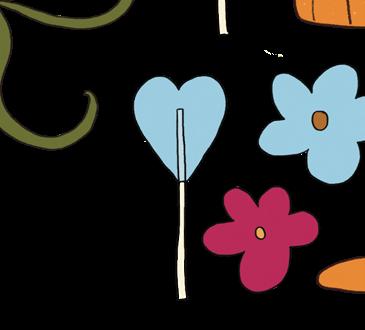
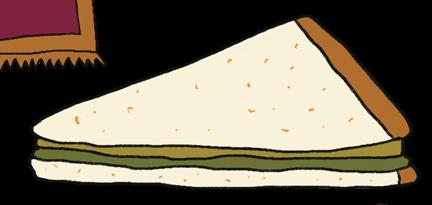
WED | Meow | 8pm
Bleach, with Secondhand Goods & Daymoon
Get your indie rock fix this Wednesday at Meow with a $10 three-header from some beloved acts: Secondhand Goods will open, representatives of the indie scene from the Garden City. They’ll be followed by Welly's own seven-piece Daymoon Bleach will end the evening, providing hard-hitting alternative flavour on their first-ever headliner. Dust off your denim jacket, and settle in for an evening of classic Aotearoa indie goodness. Tickets $10
SAT | The Old Quarry, Mt. Vic | 2pm-5pm
Waterfalls, Lorazepam, Silva, Spiral, Field Enhancement
Pyramid Club and Creative New Zealand are hosting a serene afternoon of alternative/art-pop at the former quarry on Mt. Vic (top of Ellice Street). Four different acts will shepherd you through a three-hour, outdoor concert (hopefully) in the sun. Waterfalls, Lorazepam, Silva Spiral, and Field Enhancement. Come laze in the grass, and get serenaded.
Koha
will be highlighting protest and direct action throughout 2024. In print will be a small selection.
Scan this code for a more comprehensive protest destination.
A City for People
more homes in Newtown, and in all the other suburbs close to the city centre where people want to live. This Monday they will be holding a march from Civic Square to Newtown to call for more homes, affordable rentals, and a truly liveable city - join in! Bring your friends, bring your family, bring your colleagues. Or, just come by yourself—they’ll have people there to greet you and make you feel welcome. The march will leave Civic Square at 5:30pm, ending with drinks and socialising in Newtown.
On Thursday March 14th, the ‘Free Speech Union’ (FSU) is hosting a book launch by an openly antitransgender ‘activist’. Queer Endurance / Defiance will be picketing the venue. From the organisers: “ Far from protecting freedom of expression, the FSU's campaign to associate free speech with bigotry only endangers the right to have your voice heard and speak truth to power. Join us on March 14 to defend the right to free expression against its real enemies – astroturfed front groups like the FSU and the millionaire bigots who back them.”

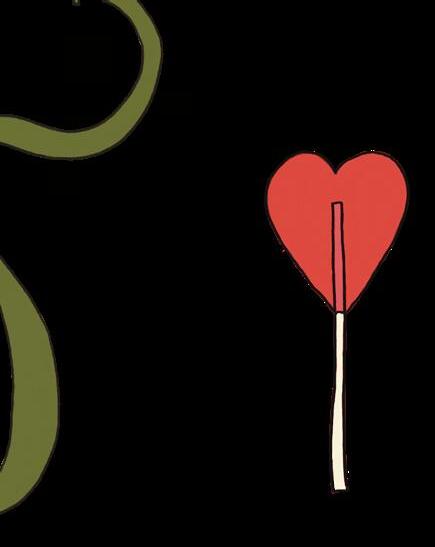
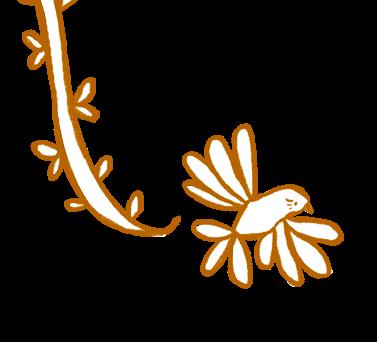
IT’S THE FUCKING NEWS
kawepūrongo NewsHub - In Memoriam
JAMIE CLUMPAS (hE/ANY)
On the 28th of February, Warner Brothers Discovery, Newshub ’s parent company, announced their newsroom will be shutting down by the end of June.
A lot has been said by many about the looming demise of Newshub, but for us this isn’t just a loss of media plurality and a blow to democracy, it’s watching one of our biggest inspirations fall.
Even though Salient may technically be many, many, years older than Newshub, the work that Newshub journalists have done over the last four decades has directly inspired many of us, against all better judgement, to have a crack at journalism.
So, before Newshub runs off to a nice farm up north to play with its other media friends, we at Salient wanted to remember what their mahi meant to Aotearoa, and what it meant to us.
Where else to start but Paddy Gower for reminding us all that this is indeed the fucking news—a moment so iconic it flies proudly above our news section. We at Salient all aspire to one day have a hot mic moment as cunty.
We have to also extend our extreme gratitude for finally getting Paul Henry off the air. Some gratitude retracted for getting Paul Henry on the air in the first place.
Newshub’s election coverage over the years has dared to ask the questions nobody else had, like; “has the Prime Minister smoked weed before?” (she had) and; “What if, instead of normal election graphics, we had a giant Laser Kiwi birthing new MPs as eggs and blowing up losing candidates?”
While you made us say “what the fuck Newshub at the time, it brings a tear to my eye to think we’ll soon be saying “where the fuck’s Newshub?”—right when we most need these sorts of questions asked.
Beyond funny moments, right when it is more needed than ever, the fall of Newshub represents a loss of
04.03.2024
creativity and hard workers in this field—a loss that will be felt in some way by everyone in Aotearoa. The work of journalists like Paddy Gower, Samantha Hayes, Mike McRoberts, Hilary Barry and so many others has meant so much for us at Salient, and for our democracy as a whole. This isn’t work that is easily replaceable, and with the rise in fake and AI generated news content, it is a bit scary to think what will fill that Newshub shaped void.
Perhaps the only way to truly honour the loss of originality in our media is with a eulogy that honours a world Post-News. One hastily copied and edited from chat gpt:
Newshub was a wonderful news agency and constant support throughout my life. They worked three jobs to meet our family’s needs and never complained. They were loved by friends and relatives and never met a stranger. Now that they are gone, a void is left in place of their presence. You will be so very missed, Newshub
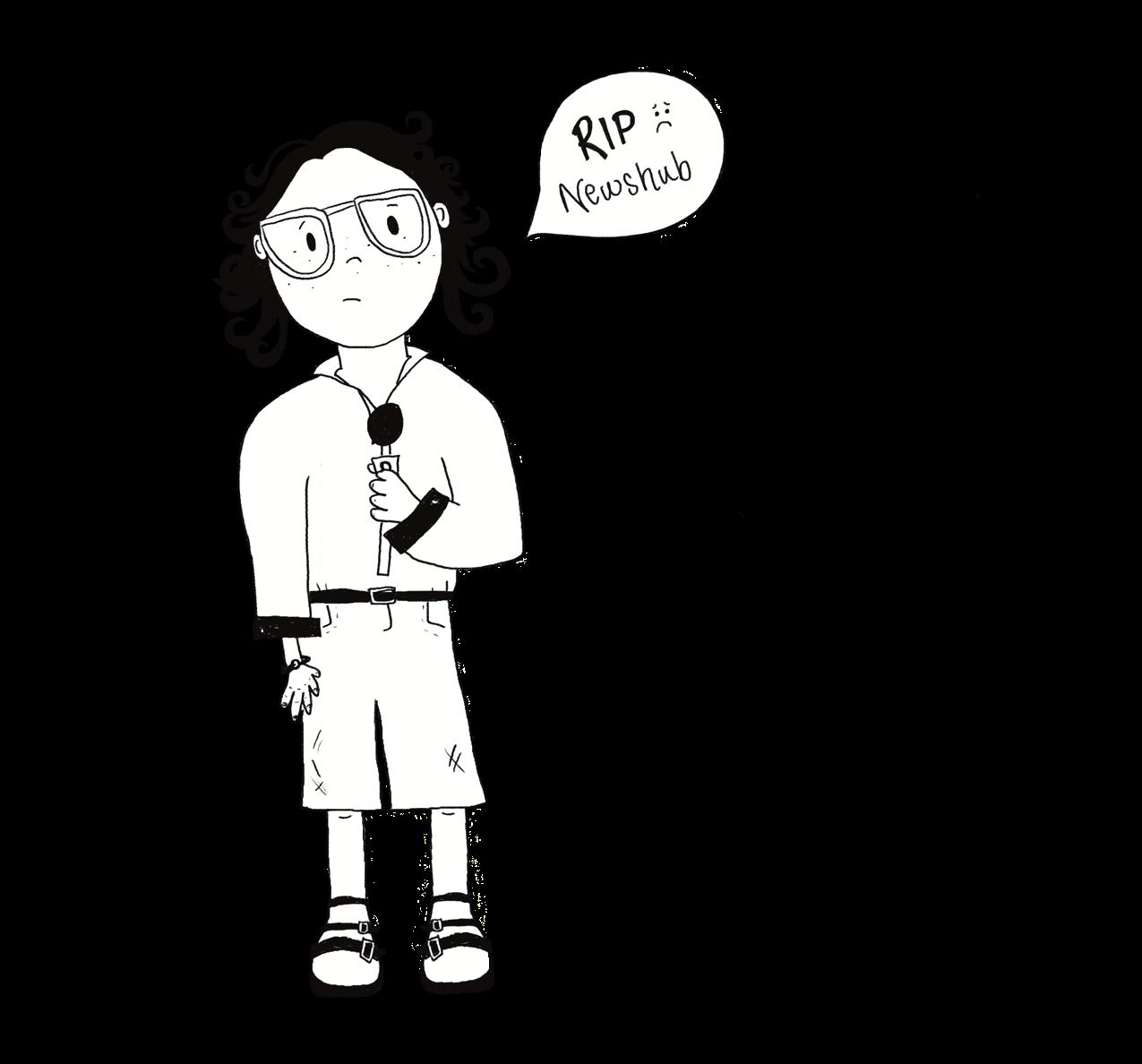
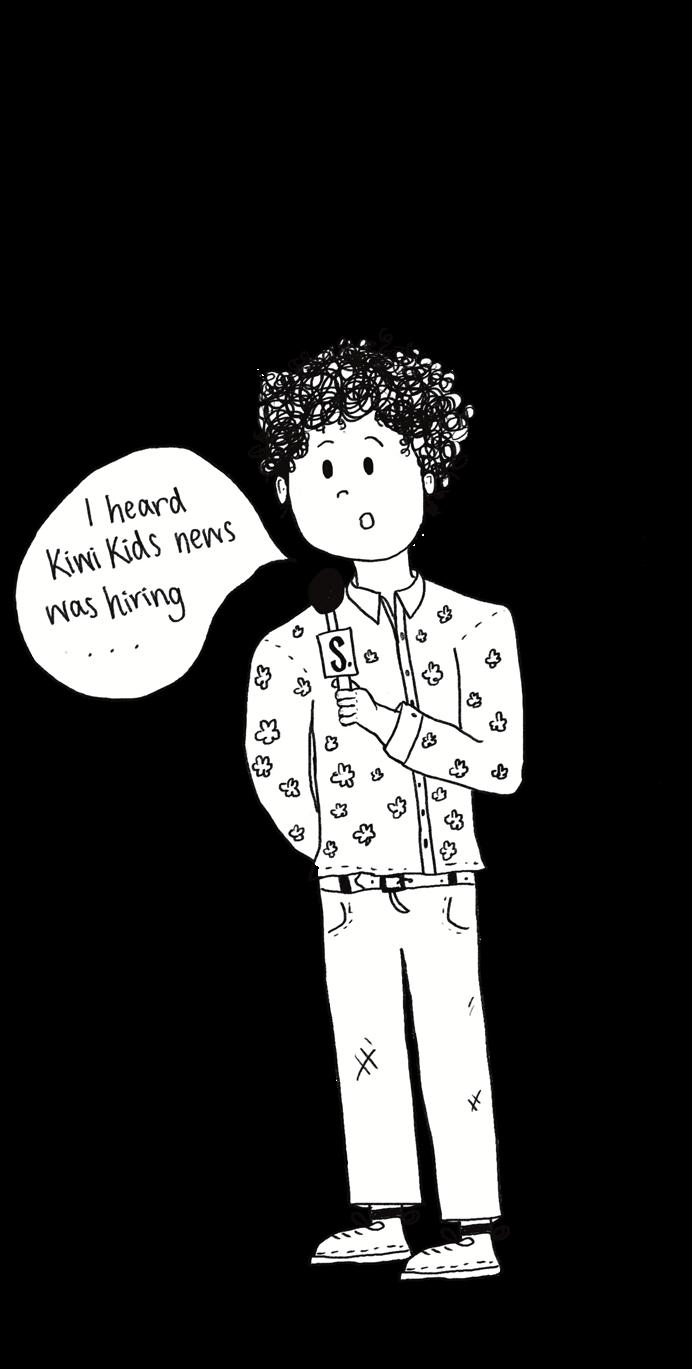
page 06

Chris, David and Winston: Masters of Stealth
ALEX hEINE-ShELDRAKE (hE/hIM)
Last week, the Act Party twitter posted a graphic celebrating the “disestablishment of the Māori Health Authority”, days before it had even entered parliament, a move as premature as the party’s leader in his Saturday night search for love.
While the freshers were busy drinking, getting to know each other, and drinking more over the past couple of weeks, the new coalition government has been rushing significant legislation through Parliament under urgency. The latest in this saga is the Pae Ora (Disestablishment of the Māori Health Authority) Amendment Bill, which has faced widespread criticism.
Urgency allows the government to get through the lawmaking process much faster, even down to a couple of days, but should be used sparingly. As every disappointing Nuku notification has taught us, rushing that 50% assignment isn’t the best idea. Urgency skips the usual pause periods between votes on bills that normally allow MPs to closely read a bill and offer amendments. It's their job here to think about their constituents (a hard job for many politicians), and ensure the bill doesn’t harm them unintentionally. Without this scrutiny, governments risk passing laws that are ineffective at best, and outright harmful at worst.
Most problematically, urgency skips the select committee stage. This is where the public can write submissions, speak to MPs about their thoughts on the bill, and suggest amendments. Without public consultation, bills often go through exactly how they were drafted, and with little concern for the constituents politicians represent. Obviously, cutting the time a law takes to pass, from 6-12 months to a couple of days, has its flaws.
Opposition parties have derided the government’s recent use of urgency, especially surrounding the Pae Ora bill. One critique is about the rushed process. Greens MP Chloe Swarbrick told Salient, “there needs to be regular scrutiny and conventions to ensure that legislation is going to operate in practice and do what it says on the tin.” Without proper process, the sloppy lawmaking urgency can cause rears its ugly head in a big way.
Opponents also say it shows a disregard of Māori communities. Te Pāti Māori Co-Leader Debbie Ngarewa-Packer described the Coalition as putting urgency before the wellbeing of tangata whenua, and
said she was “ashamed to be in this House debating this bill.” She notes the government has not provided any alternatives, or communicated with iwi about the disestablishment process. This bill is undeniably a change that has deep and wide-reaching impacts for vulnerable Māori communities, and it is clear the Māori community at large is outraged about their treatment through this process. The end result is a bill passed to fulfill an election commitment with no care for or attempt to consult about its effect on the people of Aotearoa.
The government remains firm that it is not misusing urgency rules. Leader of House Chris Bishop told Salient that, “the repeal of the Māori Health Authority is a very simple piece of legislation and all of the issues were well canvassed in the last parliament so we don’t think [select committee] needs to happen.” In his speech introducing the urgency vote for a series of bills to the house, Bishop told parliament that these bills were ones the Government won a mandate for in the election, and therefore, because people knew they were coming, there was no need for consultation. This is how urgency is justified for the Pae Ora bill, and their repealing of Fair Pay Agreements. They also note that they need to fulfill their 100 day plan commitments.
This is the only justification the government has provided for other legislation, such as the Smokefree changes. Other governments have used urgency for their 100-day plans before, but the coalition agenda means changes under urgency far more significant than anything in the past. Labour used urgency to increase parental leave in 2017; this government disestablished an entire government entity.
Objectively, this government has used more urgency than anyone in a very long time. A study right here at Te Herenga Waka on the use of urgency showed that from 1987 to 2010, an average of 10 bills per term were put through under urgency. So far in 2024, 16 have been passed, more than previous governments did in their entire terms.
The coalition has stretched the reasonable limits of urgency in parliament to pass a colossal legislative agenda, both in the individual bill’s significance and the sheer amount of bills. Important legislation is therefore being rushed past the public, and once we all look back into the year and pay attention, this country will look like a very different place.
page 07
the news kawepūrongo

Council endorses Reading
DAN MOSKOVITZ (hE/hIM)
In January 2019 Reading Cinema complex unexpectedly closed its doors—just a few months before the central library would do the same. A cinema complex boasting food courts, an ANZ outlet, McDonald’s and more, bringing 6000 daily visitors to the heart of Courtney Place, gone. Why? The building needed earthquake strengthening.
In the five years since, Reading has been abandoned. No work has been done on it; its closure a sign of things to come as more and more businesses and buildings followed suit.
“In my lifetime, there has been no other event which has contributed more to the loss of vitality and vibrancy in the central city,” says city councilor Nīkau Wi Neera. “Reading catered to teenagers, children, young families, and more. With the current state of Courtney Place being bars and pubs, those groups have nowhere to go.”
In October 2022 Reading finally announced “a top-to-bottom renovation” of the cinema. Yet the building stayed dead as a dodo. In 2023, The Post reported Reading was unable to independently fund the strengthening required.
This led to the proposal of a $32 million deal: the city council buys the land, and leases it back to Reading. WCC would pay an initial six million, with an additional 26 million to be invested if Reading fulfilled contractual obligations to do the mahi. If not, the council would get its money back.
The plan was derided by some councilors as expensive corporate welfare, in a city already struggling with rates and pipes. Despite this, a late charge to halt the arrangement failed in a tight 7-9 vote. The council is set to buy the land. “It’s a small deal comparatively,” says councilor John Apanowicz, who voted to buy. “It’s 26 million after a six million deposit. We’re spending 1.8 billion over 10 years on fixing the pipes … It’s small financially, but it’s significant because people care about it.”
There are still considerable criticisms of the contract. As pointed out by councilor Ray Chung, the council is selling ground leases (land) elsewhere to fund the deal. Councilor Tim Brown pushed back on this point, saying revenue from the sold leases generated would be equivalent to the deal. Councillor Rebecca Matthews suggested ground lease land had “no
strategic value”, so it made sense to instead buy territory which mattered. Councillor Ben McNulty said his vote ultimately came down to the fact there are no legal mechanisms to force Reading into using the land, and that should Reading fail to strengthen, the council would be able to walk away and get its money back. Brown, Matthews and McNulty all voted to buy.
The issue is, Reading has the option to repurchase the land for the same $32 million WCC paid for it, at any point in the next 15 years. Councillor Tony Randle, who voted against the purchase, identifies this as nonsensical: the land will increase in value, while the value Reading can buy it back for is not inflation-adjusted.
Silent throughout all of this is Reading itself. They’re yet to comment to any of the media covering this story.
Regardless of whether this deal is a good idea, there’s a feeling of frustration across Te-Whanganui-a-Tara at having to cajole Reading into doing something, anything, with the prime real estate they’ve left abandoned in a city of unaffordable housing.
At any point in the past five years Reading could have sold the land to a different company. In 2022 there were reported discussions with Woolworths which fell through. At any point, Reading could have communicated their plans and situation to Wellingtonians.
Instead, the council has to pay them to fix it.
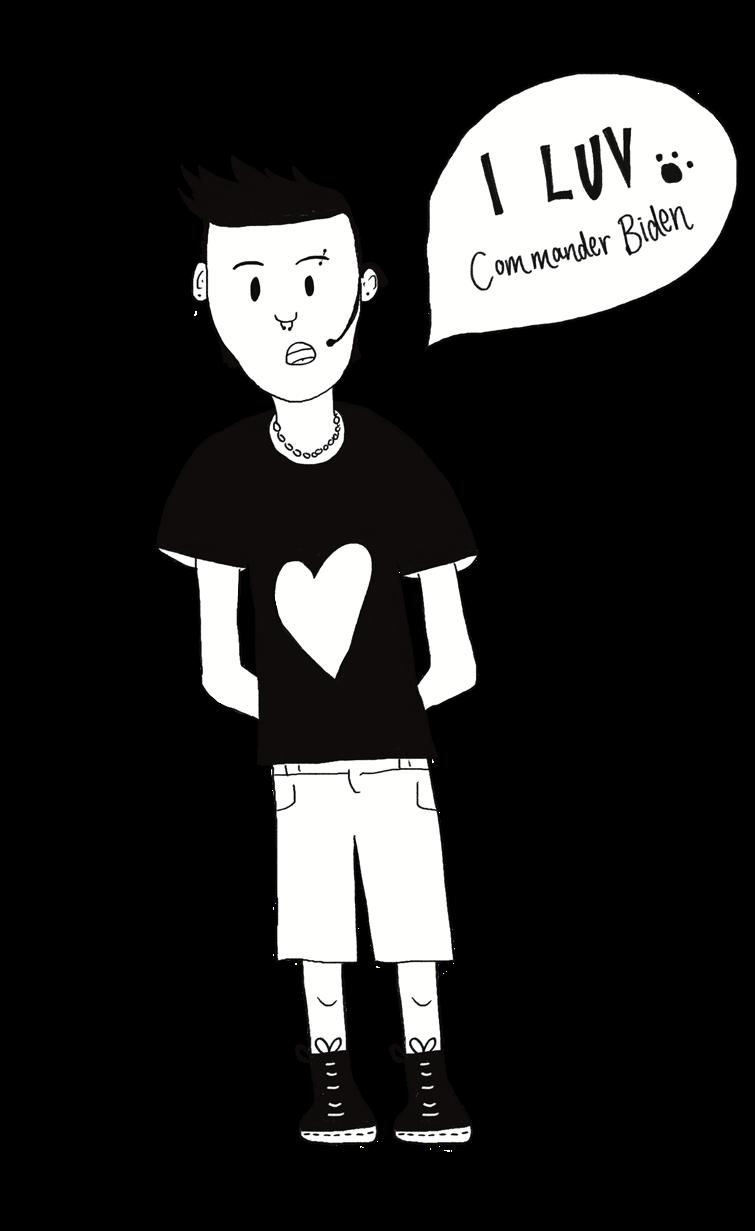
page 08
the news kawepūrongo

IDF massacres Gazans clamouring for basic necessities
WILL IRVINE (hE/hIM)
On February 29, Israeli tanks escorted a delivery of aid trucks to the seaside Al-Rashid street in north Gaza, a city that has been almost completely gutted by Israel’s intense and unrelenting bombardment. Thousands of hungry Palestinians gathered to get basic necessities, most notably flour, in a territory that has experienced the fastest period of starvation in recent human history. They were hungry, tired, and angry. The civilians clamoured around the trucks, searching for a few day’s more survival for their families. In response, the Israeli troops fired shots above the crowd.
Just minutes later, they opened fire en masse, gunning down hundreds of hungry civilians, injuring more than 700 people and killing ~120. As people fled, the Israeli military identified them as combatants, leading to further bloodshed. Witnesses reported shells falling from warplanes and the use of combat drones to attack civilians. The shooting, referred to in the press as the “Flour Massacre”, forms part of
a wider pattern of Israeli attacks on those seeking humanitarian aid. By utilising terror, Israeli forces have been systematically preventing Palestinians from accessing food and medical supplies, which are in desperate need in the besieged Gaza Strip.
In response, the IDF released drone footage of Palestinians gathering around the trucks, claiming that this illustrated looting and rioting on the part of the victims. The frequently pro-Israel New York Times described the footage as “heavily edited to induce blame”, and the BBC notes that the video was stitched together from four separate videos. The IDF has not responded to requests to release unedited footage of the event.
As the UN Security Council rushed to condemn the incident, the USA vetoed any such action from taking place. For the New Zealand government, the question still remains—how long are we prepared to sit by idly as our allies assist in genocide?
An Open Letter to VUW: Save Biden’s Bitin’
WILL IRVINE (hE/hIM)
Biden is in the news again. People say he’s dangerous. Out of control. Doesn’t know what he’s doing. And maybe they’re right—or maybe he just needs a helping hand.
I’m referring, of course, to Commander Biden, the President’s German Shepherd who has been in the news recently for a series of “unprovoked” attacks on Secret Service officers, 12 of whom have needed

As the media witch hunt comes for my precious boy, I just have to ask the same question the Black Eyed Peas so boldly asked more than 20 years ago—where is the love? The woke mob love to criticise Commander, but few of us can really understand the difficulties he’s facing. After all, if your house was filled with Secret Service agents, various corrupt bureaucrats, and menacing twinks like Pete Buttigieg, you too would start biting people. Maybe we could all take a leaf out of Commander Biden’s book.
Commander seems to be lost in a world without a shred of empathy. If we can do anything at all to help, we should. So it is with large, pleading, Pussin-Boots eyes that we ask Te Herenga Waka to do their duty and rehome Commander Biden.
As a University, we already host several campus cats. What’s one more campus dog? On Kelburn Campus, Commander Biden would finally feel free to bite whoever he wants with zero repercussions. It’s about time. Bring our boy home.
page 09 the news kawepūrongo

One, Two, Buckle Your Shoes—Getting Around Gets Tougher
EThAN ROGACION (hE/hIM)
The Government released its draft policy statement on transport last week and the news is bleak for anyone who wants to go anywhere other than their flat and the dairy down the road. Funding for public transport, walking, and cycling has been significantly slashed by the latest policy, down $1 billion from the initial allocation set by the prior Labour government.
In addition, while money has been allocated for some roading projects, the draft policy statement has said that none of the funding for local roads is to be used on “multi-modal improvements” like bus or cycle lanes, and that “there will be reduced funding for traffic calming measures, such as speed bumps.”
This isn’t just bad news for woke lefties who cycle to their coffee dates wearing vintage Green Party jumpers or whatever, either! The latest announcement hits hard at blokey-blokes who hoon their modded Honda Civic down The Terrace at 11pm—road user charges (RUCs) are set to be introduced for all cars, and the cost of getting a rego is set to increase over the coming years.
“The whole idea of driving an electric vehicle was that not having RUCs would be a major incentive to get them, so putting it on electric vehicles AND petrol vehicles will just incentivise people to drive diesel vehicles again,” said one second-year management student who had a shocking amount of things to say to Salient about road user charges, adding “[i]t just seems like a money making scheme!”
Criticism has come swiftly from the opposition: the Greens’ Julie Anne Genter labelled the policy “pathetic,” stating it “will condemn kids to being stuck in the back of cars rather than having the freedom to get around their neighbourhoods and to school by walking or biking.”
“People living on low incomes already have to spend a far higher share of their income on transport. Forcing them to own and operate a car to get around, or to pay more for public transport, is not going to reduce cost of living.”
All of these policy changes from central government follow a vote by the Greater Wellington Regional Council to increase fares on Metlink services by 10%, and to scrap the Community Connect concession for under-25s.
Metlink group manager Samantha Gain told Salient that, “A report before council estimated that without a fares increase, a rates rise of 3.3 percent would be needed to cover public transport costs, expected to climb by 19 percent in the next financial year. Approximately third of Metlink funding comes from fares, the rest from government and regional council rates.”
Better dust off them running shoes … it seems like they may soon become the best option.
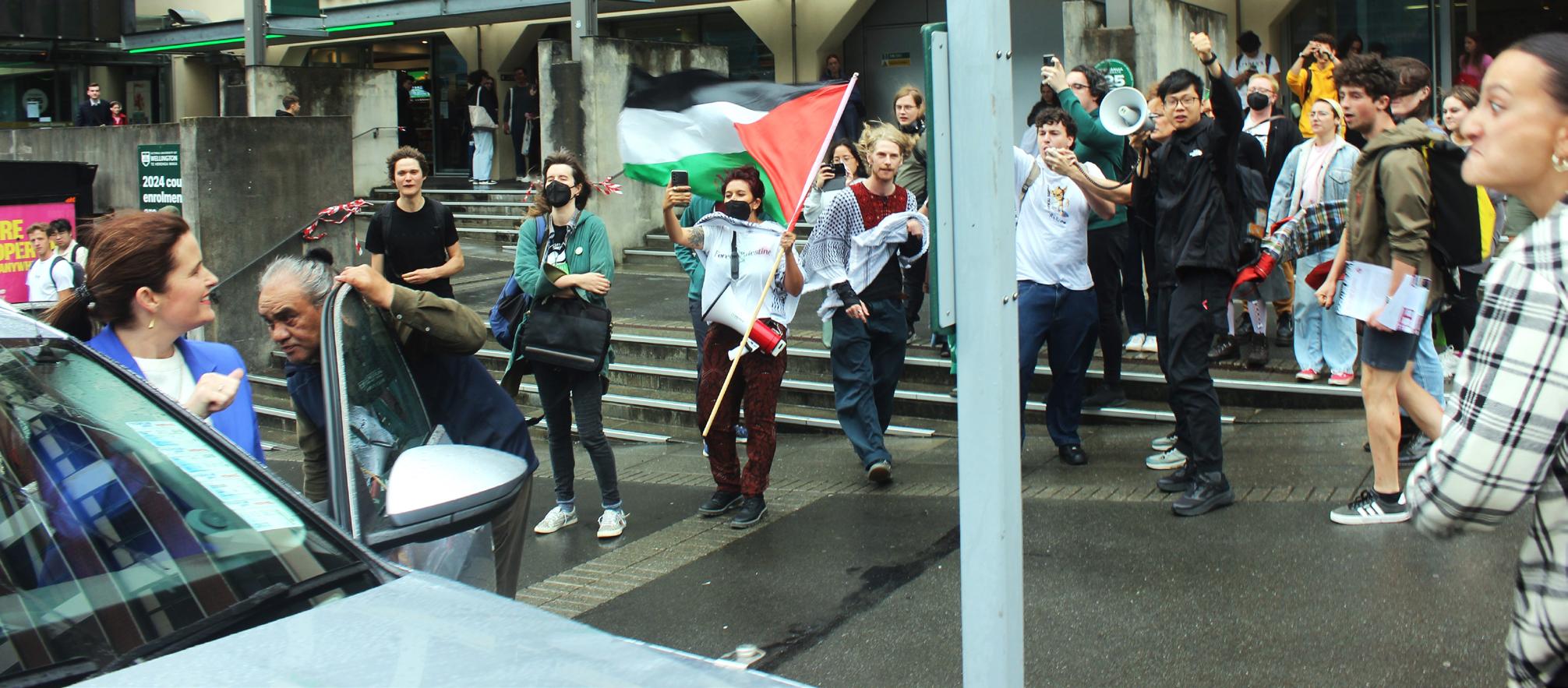
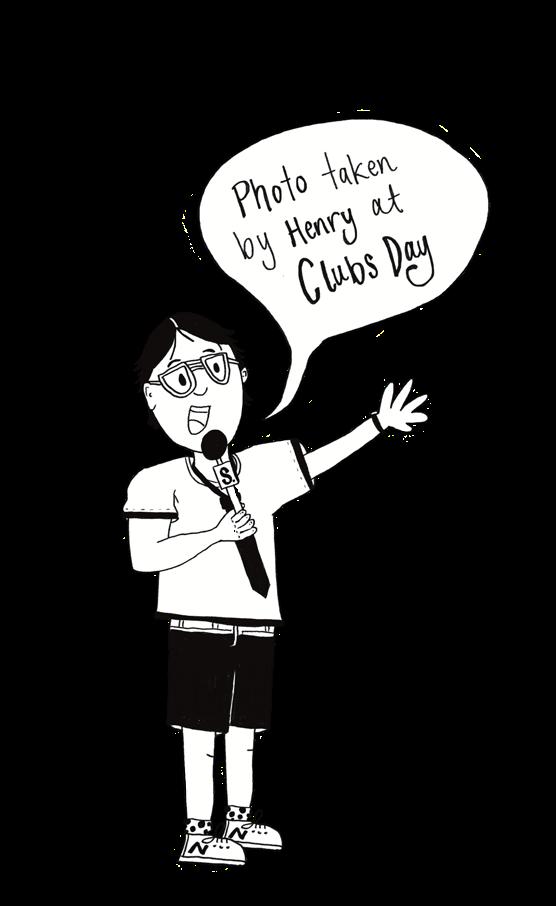
page 10
the news kawepūrongo
IN REVIEW
PICTURED: National MP and Finance Minister, Nicola Willis, scarpering as she is protested out of Kelburn Campus.
WEEK
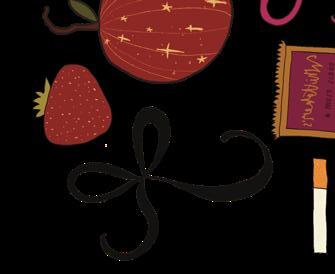
THE WEEK IN review
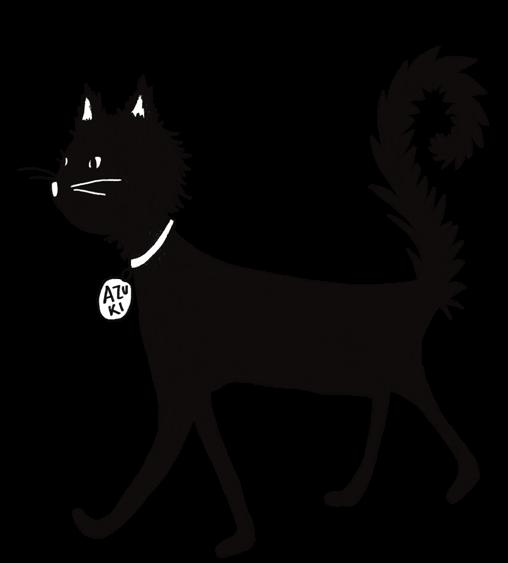
Chasing the Nats: A Retrospective:
words by HENRY BROADBENT
11a.m, Clubs Day: A sunny morning in Kelburn. Campus swarms with idealistic undergraduates. In a shaded corner of the Hub, Nicola Willis, Chris Bishop, and a troupe of Young Nats proudly open a striking, sky-blue stall.
12p.m, Clubs Day: Willis and a group of 20-30 protestors take a lap of the Lab before she departs for a getaway car idling on Kelburn Parade, followed by her unwanted entourage. Bishop has dematerialised. The stall stands empty.
On the 28th of last month a very effective message was sent to the National Party. The medium was protest—a collective, ‘snap’ action involving members of Pōneke-based Student Justice for Palestine (SJP), members of International Socialists Aotearoa, and a ready group of student allies in the Hub. Nabilah, an organiser from SJP, described the action to Salient as expression from students who “stand against National's failures to take real action to put a stop to the genocide in Palestine, and their policies and decisions to undermine and violate Te Tiriti and align NZ with imperialist powers”.
Advocacy groups across the motu have identified National, through their consistent inaction and failures to condemn Israeli war-crimes, as complicit in the ongoing genocide in Gaza. The start of the year saw complicity extending beyond inaction: NZ Defence Forces deployed to the Red Sea, Christpher Luxon throwing his support behind US and UK airstrikes in Yemen. This imperialist mindset might find friends in overseas Parliaments, but SJP has made it clear they won’t be found at Vic.
The Beef Is Over … For Now: Brownlee Grants Salient Press Pass
words by ETHAN ROGACION
In a reversal of his previously indicated position, Speaker of The House Gerry Brownlee has granted Salient swipe card access to Parliament’s press gallery.
As reported in last week’s issue, the Speaker denied Salient swipe-card access into Parliament—which we have held for over a decade—when we applied for a name change earlier last month. Primarily, he cited “security” concerns, and an ongoing review of swipe-card access, which implies that he is Very Intimidated by Salient editor Phoebe Robertson’s Intimidating Muscles.
In a letter sent to Salient last Tuesday, the Speaker said that his only concern was “access to Parliament.”

“As the new Speaker I am acting to consider these concerns with an internal review of the access card allocation system.” Brownlee stated that “[t]his doesn’t stop Salient coming into the Parliament or attending the Post Cab press conference as that occurs on the same floor as the security screening process.”
The Speaker reaffirmed this in a phone call with me last Wednesday, which caused me to physically lurch and run out of the law school common room. He assured Salient that we would have access into the Parliamentary precinct.
In a follow-up call later that afternoon, Brownlee rang me again—which frightened me less because now I have the Speaker’s number on my phone (thanks Gerry)—and stated that, since Salient would need a swipe card to access certain areas where press events may be held, he has granted us a 3-month long access card, pending the findings of his review.
looks forward to chasing around the nation’s most powerful politicians in Parliament, and asking them our most powerful questions.
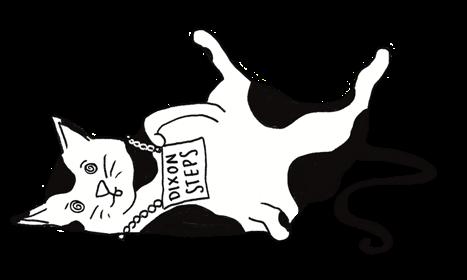
page 11

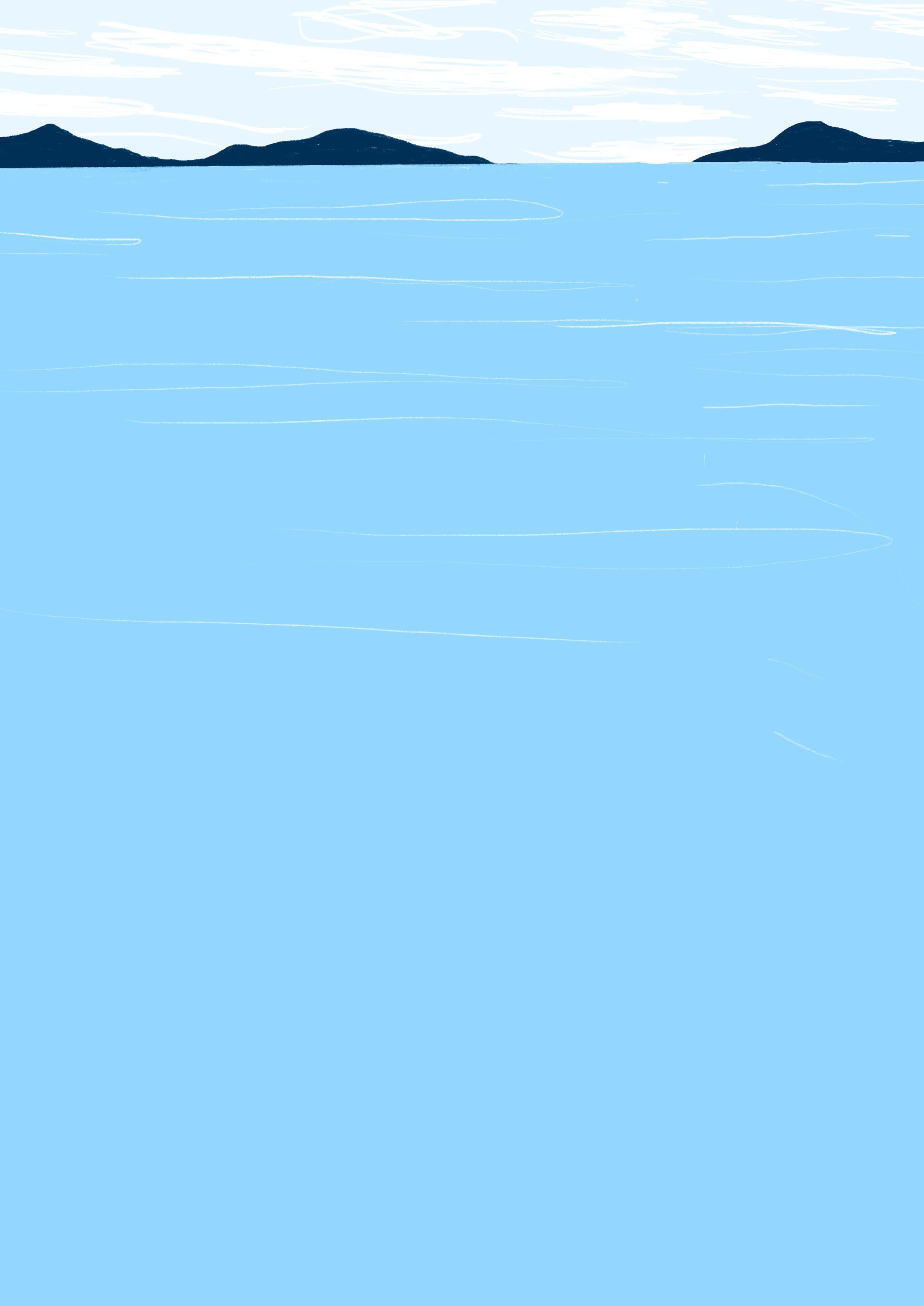
In Praise of PASI
written by Mauatua Fa’ara-Reynolds (she/they)
In his seminal text, Towards a New Oceania, Albert Wendt says:
“Oceania deserves much more than an attempt at mundane fact; only the imagination in free flight can hope—if not to contain her—to grasp some of her shape, plumage, and pain.”
And that is precisely what Pacific Studies achieves: a departure from sterile facts and figures, hoping to arrive at the Pacific’s full mystifying magnitude. As a severely misunderstood region caught in the colonial webs of exotic desire, noble or ignoble savagery, and perceived smallness, Pacific Studies untangles these narratives to centre Pasifika perspectives, stories, and (most importantly) people.
Vic’s Pacific Studies programme (hot people call it PASI) is unique in the way that it encourages Pasifika students to feel at home in themselves, legitimising and praising our intellectual whakapapa. Moreover, PASI’s reflexivity is unmatched, always seeking to improve itself for the benefit of its tauira. And, the cherry on top, it's all delivered with an unbelievable amount of aroha.
Founded by the late Dr. Teresia Teaiwa, PASI at VUW has been running since 2000 and is currently directed by the incredible Dr. April Henderson. The major involves only four courses:
1. PASI101 ‘The Pacific Heritage’
2. PASI201 ‘Comparative History in Polynesia’
3. PASI202 ‘Globalisation and Popular Culture in the
4. PASI301
Students must also do one French, Māori, or Sāmoan course. Although its life span is short, the programme is jam-packed with delicious knowledge about our region.
Growing up in Australia, I was fed countless concerning narratives about my people. And along the way, I came to believe that our dances, songs, chants, and tattoos were precisely just that; dances, songs, chants, and tattoos, empty of any meaning or significance (thank you, internalised racism). But, as stated in the PASI101 course content description, whakapapa is taonga; it’s all the material and immaterial treasures we inherit. And it’s PASI’s focus on the immaterial taonga that’s especially significant.
PASI101’s final assignment is a creative assessment; the Akamai project. Here students have the opportunity to critically and creatively respond to a specific PASI101 theme, i.e. go batshit crazy and do whatever the fuck they want. And when I tell you these bitches put their whole badussy into it … I really mean it. The Akamai is a chance for everyone to delve into their personal experiences and connect them to broader social and political processes; they discover for themselves that the personal truly is political. And with the creative aspect of the assignment, students realise that the creative production of knowledge is just as valuable as the academic; something our tupuna knew too.
page 12 features ahuatanga
Pacific’
‘Framing the Pacific: Theorising Culture and Society’
I used to think poetry was a waste of time. I thought it was just another high-brow, esoteric art form that excluded my people and couldn’t possibly bear the weight of our stories. But then PASI came along; my class was structured around a poem (which I’ve ironically forgotten), and taught by a poet. And of course, I learnt that my tupuna have always made ‘poetry’. [It was probably] a gentle kick up the ass from my ancestors, saying “Catch up bitch, we’ve been on that grind for AGES”. And the Akamai, for which I wrote a poem, was where I flourished; I felt like I’d finally found a way to authentically voice all the voiceless things. I drew on my Grand-père’s involvement in the nuclear testings that occurred in the Tuamotu Archipelago, and linked it to bigger issues of neo-colonialism and the damage caused by Western framings of the Pacific. It was tough, and I cried a lot. But I discovered it was all part of a bigger picture. One that I can start painting over.
Tatiana Wong-Tung had a similar experience, describing the Akamai as the “Project that changed everything. It made me realise that my voice and experience matters”. Tatiana is the School of Cultures and Languages’ Student Rep for VUWSA, and was also the Student Rep for all four PASI courses.
Even April could relate; her introduction to Pacific Studies was the conference paper, “Yaqona/Yagonqu:

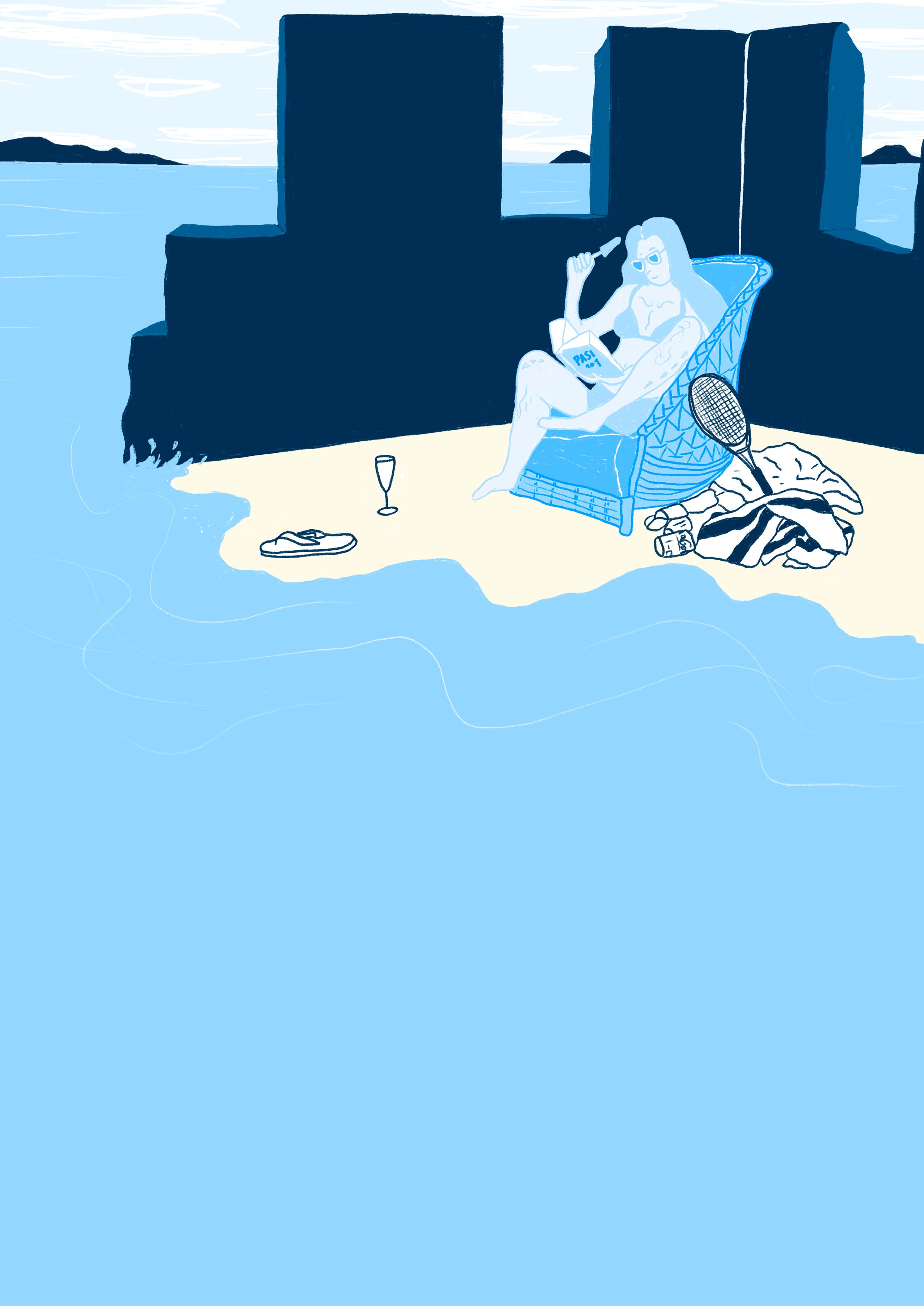
Roots and Routes of a Displaced Native” by a young Teresia Teaiwa. Written in the style of a film script, Teaiwa narrated the history of the British mining of Banaban land for phosphate, which led to the mass relocation of Banabans to Fiji. Told through camera pans between characters and even a soundtrack, Teaiwa was a masterful artist and scholar, leaving behind an enduring legacy for Pacific Studies, namely her sustained effort to better the programme for students.
Throughout our interview, Māmā April and I would wander off-topic and reminisce on my PASI cohort. She was genuinely intrigued to hear about my experience, struggles, highlights, and lowlights. When I started talking about PASI201, she said, “I’m going to take notes! Because PASI201, I joke about it as the ‘problem child’. That was Teresia’s course, she changed that course so many times, always fiddling and never quite happy with it. So now you’re gonna tell me how you found it!”. I was meant to be interviewing her, not the other way around. But it goes to show how keen she is to better the course, and improve the student experience.
But the final paper, PASI301, is the most impressive example of course-tweaking. Until 2009, the class consisted of lectures and individual presentations, but there was still trouble in paradise. April said,
page 13 features ahuatanga

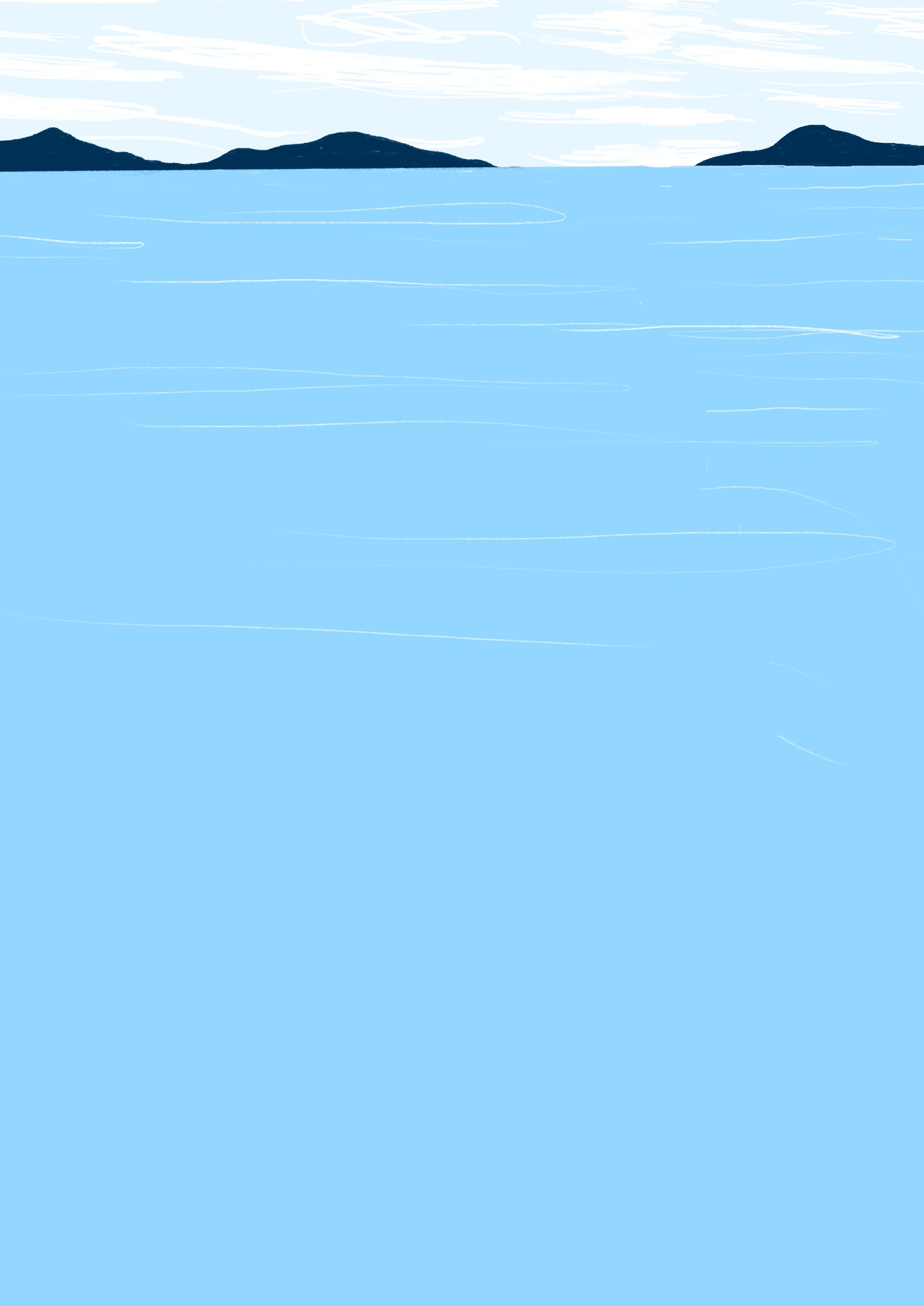
"That’s PASI301’s magic: it caters to the dynamics of Pasifika relationships and how we function in community settings."
“There was so much absenteeism, so much lacklustre engagement”. So, what did she do? She redesigned the whole programme to be centred around rigorous group work, instead of individual. And it was a profound change. April found that “Students would let down their own expectations of themselves, but they were less likely to let down their group”. And, folks, the result is incredible; it's one of the most challenging and rewarding classes I’ve ever done.
It reminds me of the whakataukī: Nā tō rourou, nā taku rourou ka ora ai te iwi. With your food basket and my food basket, the people will thrive. When we combined our ideas and worked together, this type of deep learning occurred, where course content became embedded in our psyche (the required readings are my roman empire). We had to do the individual work because we couldn’t disappoint our peers; we had a whole team we were held accountable to. While it fucking sucked sometimes because of the shame and guilt you’d feel if you didn’t do that week’s work, other members would rise up and help. That’s PASI301’s magic: it caters to the dynamics of Pasifika relationships and how we function in community settings. The presentation also gave students a chance to flex their ancestral oratory skills. As stated by April, “[s]tudents are often quite able to deliver insights skilfully orally, that they may not be able to deliver as skilfully in writing”. I have never experienced a class so eager to be as
beneficial as possible for its students. It doesn’t just talk about decolonisation, it embodies decolonial aspirations and is paving the way for other disciplines in recentring indigenous ways of doing and being.
When I asked Tatiana what she hopes to see in PASI’s future, she said, “I really want to see PASI thriving and expanding … but I think having more targeted papers would make PASI that much more attractive to non-PASI majors''. She also believes that “there needs to be more chances for that growth in undergrad”. And with the newly hired Nālani Wilson-Hokowhitu to teach PASI101 and PASI201, there seems to be a new direction, and hopefully, some new exciting things coming up.
As a side hustle, I work for a company that helps high school students with internships at their desired workplaces, jumpstarting their careers at the ripe age of 16 or 17. These rangatahi are truly exceptional— sometimes I stop and think, fuck, at that age I was staying up until 3 am reading Tom Riddle fanfic. But the tauira who join the programme are extremely committed, incredibly intelligent, and just delightful A few of those I worked with last year are enrolled in PASI101 for 2024, and I’m ecstatic. This is the next generation of thinkers, doers, change-makers, and I know they’ll be deeply nurtured and loved here.
page 14 features ahuatanga
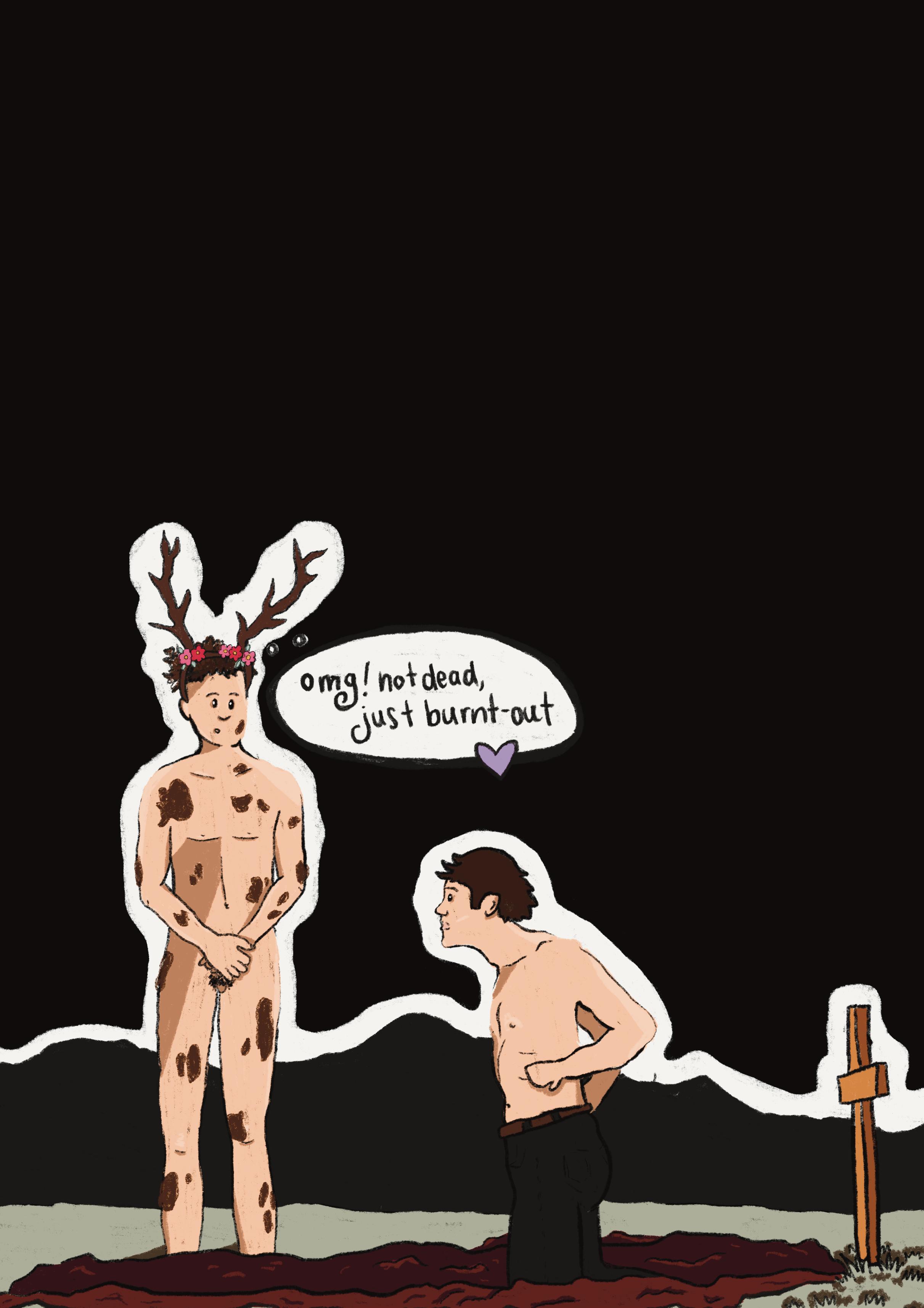
So You're

Burnt out
What now?
Candidly Weighed-Up by Flynn Rodger (he/they)
Contrary to how I felt as a big-brained child, there are a lot of people like me. I excelled in primary school, coasted through high school with minimal studying, and in my first year at uni I crashed in a fiery, burning heap. My ‘fees free’ went down the toilet, along with most of my relatives’ opinions of me. Woe is the ‘gifted’ student who never learned how to study. But somehow, I persevered and recovered (or at least continued) my journey.
features ahuatanga

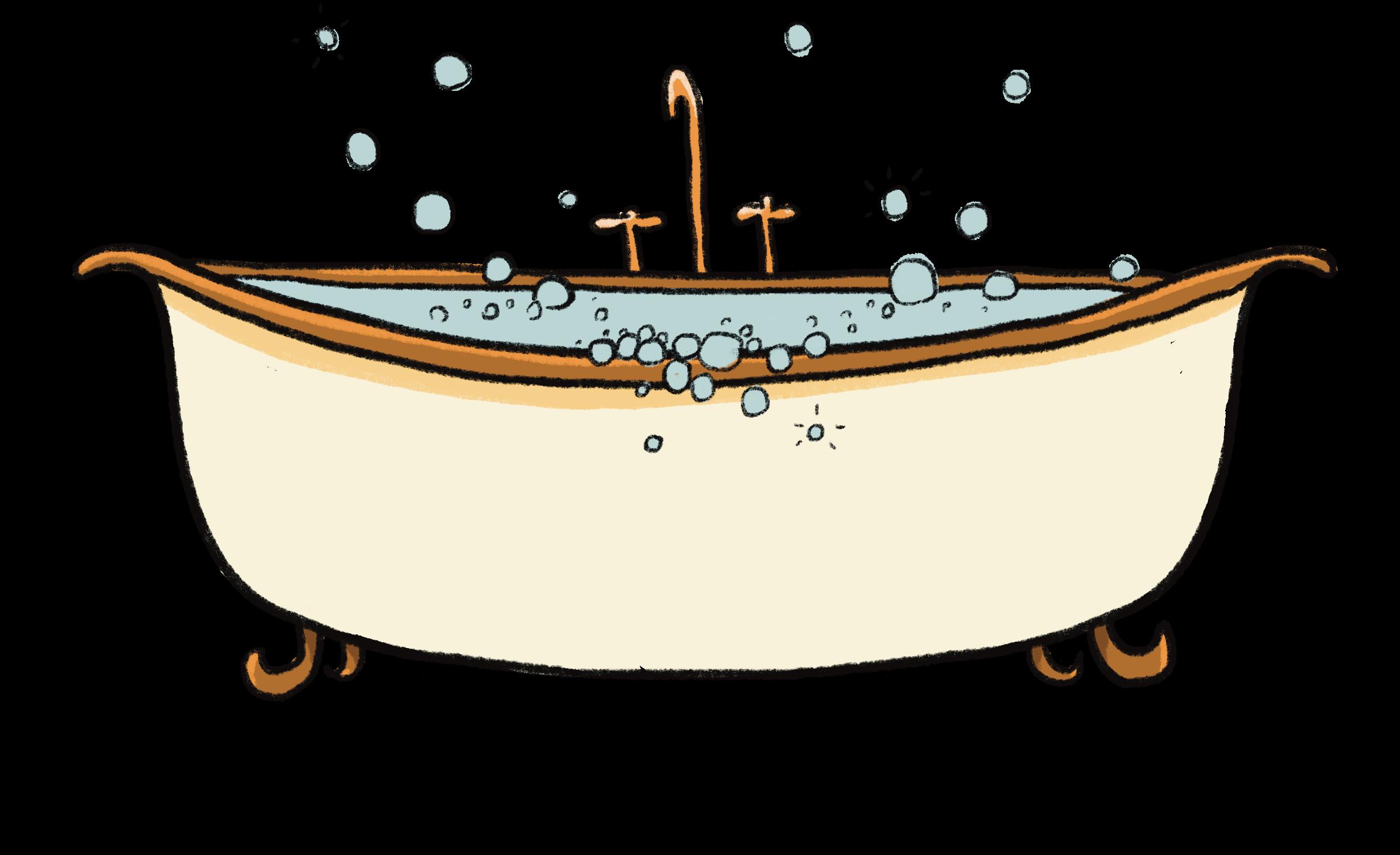
in my disintegrating Doc Martens one day. For the sake of your student loan debt and general mental health, I hope you never do, but if you feel academic burnout looming on your horizon and file this article away for later, I won’t tell anyone. Promise.
You may be wondering, “What happened Flynn? What was it that smacked you out of the air like the meandering housefly you were?” and while I’d love to tell you that my slow yet steady decline was simple and reversible, the truth is never so pristine.
Leading up to my first year at uni, I wasn’t looking after myself. I wasn’t eating enough, I was constantly anxious, and turned self destructive at the slightest inconvenience or perceived failure. I drifted through the rapids of my first trimester like a lost baby duckling sent careening down a river. I was incurably miserable. There was only one thing for it: psychiatric medication.
The decision to go on antidepressants had been a long time coming, and it’s exceedingly ordinary for young people out of high school to seek biochemical assistance or counselling. I did both, and while I felt better, my study took a back seat. I had to devote time and energy towards me, not my work. I changed my living situation, my gut microbiome, and my brain chemistry, but by the time I looked around at my new reality, university had shrivelled like a forgotten indoor plant.
The way I’m writing about this now is rather blithe, but when it happened it was crushing. My whole sense of self was dissolving before my eyes. It felt like the end of my little world.
Not even counselling or trips to my kind academic advisor could save me from the truth that seemed to loom above me, or else weigh on my shoulders like the corpse of an albatross: I would have to drop out, or start over. Two roads diverged in a yellow wood, and only one of them led to a degree. Time to break it down into a pros and cons list.
Pros of dropping out:
• Skip the student debt that may crush you for all eternity.
• Give yourself the time to pull your shit together without the compounding pressure of overdue assignments.
• Do something else, and scrub the mould of anxiety out of your brain, potentially giving yourself the ability to start over at some point with better odds.
Cons of dropping out:
• Accept the inevitable disappointment in yourself and from others.
• Give up on the hopes and dreams that led you here (Assuming your degree was a direct path to a career that you could not bypass).
• Move back in with your family (Assuming you were out of home anyway).
• Potentially lose touch with your friends at uni who have not flunked out. When you flunk a course in uni, you can get a
page 16

"For the sake of your student loan debt and mental health (...) file this article away for later, I won't tell anyone. Promise."
refund for at least part of your fees for that course, so long as you have adequate documentation of your exceptional circumstances and jump through the right bureaucratic hoops before you run out of time. As easy as it sounds from an external point of view, the absolute last thing I could fathom doing when I was zonked out on meds and stuffed full of anxiety was paperwork. To compound this, I was still a fresher with a confused conception of how university even functioned.
Based on that secondary failure to get more refunded for my failed courses, this is my advice for recouping your fees/fees free:
• Contact a Health Navigator at Mauri Ora. If you’re not signed up for the practice, you will have to complete intake forms and such, but our current Health Navigators are absolute godsends and can alleviate a lot of stress. Trust.
• In the meantime, stop trying to get a million extensions. You probably won’t catch up on all of the work you’ve missed, especially if the cause of your procrastination has not been resolved. It takes more than a mid-tri break to heal your brain. Bite the bullet and consider withdrawing from courses.
• If only temporarily, try moving to part time study. With the help of a medical practitioner or counsellor and hopefully a health navigator, you can even apply for Limited Full Time Status to still get a student loan for accommodation. This can absolutely be temporary and will not ruin your entire career path.
• Take your time. Be patient with yourself, and kind. I know it’s hard to be good to yourself, though, so any act of generosity is a win.
Please note that these lists are non-exhaustive and not universal. Results may vary. Batteries not included.
I started over last year. A summer of manual labour and strained customer-service smiles filled me with a certain whimsical longing for academia. My reasoning may not have been entirely sound, but in my case these things worked:
• Starting small; one or two courses per trimester.
• Staying in contact with my counsellor at Mauri Ora, and my academic advisor.
• Looking into (spicy brain) alternative ways of studying, eg. Pomodoro technique, setting up a designated study space, turning my phone off, ‘To Done’ lists, etc.
• Letting go of shame.
That last one has been much, much harder to achieve than anything else. I’m always working on it. I still feel like academia is the only field I can succeed in; my other skills-sets are in latte art, and tabletop roleplaying games. I’m not sure how to begin deconstructing this, as my mentality is still that if I cannot do something, I must be lazy. A lifetime of procrastination followed by embarrassment has not prepared me to accept myself as imperfect.
But at least I don’t biodegrade like a wet paper bag every time I get a mediocre grade, and I’m not ashamed of my mistakes.
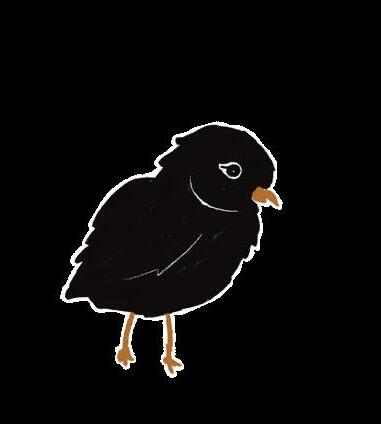
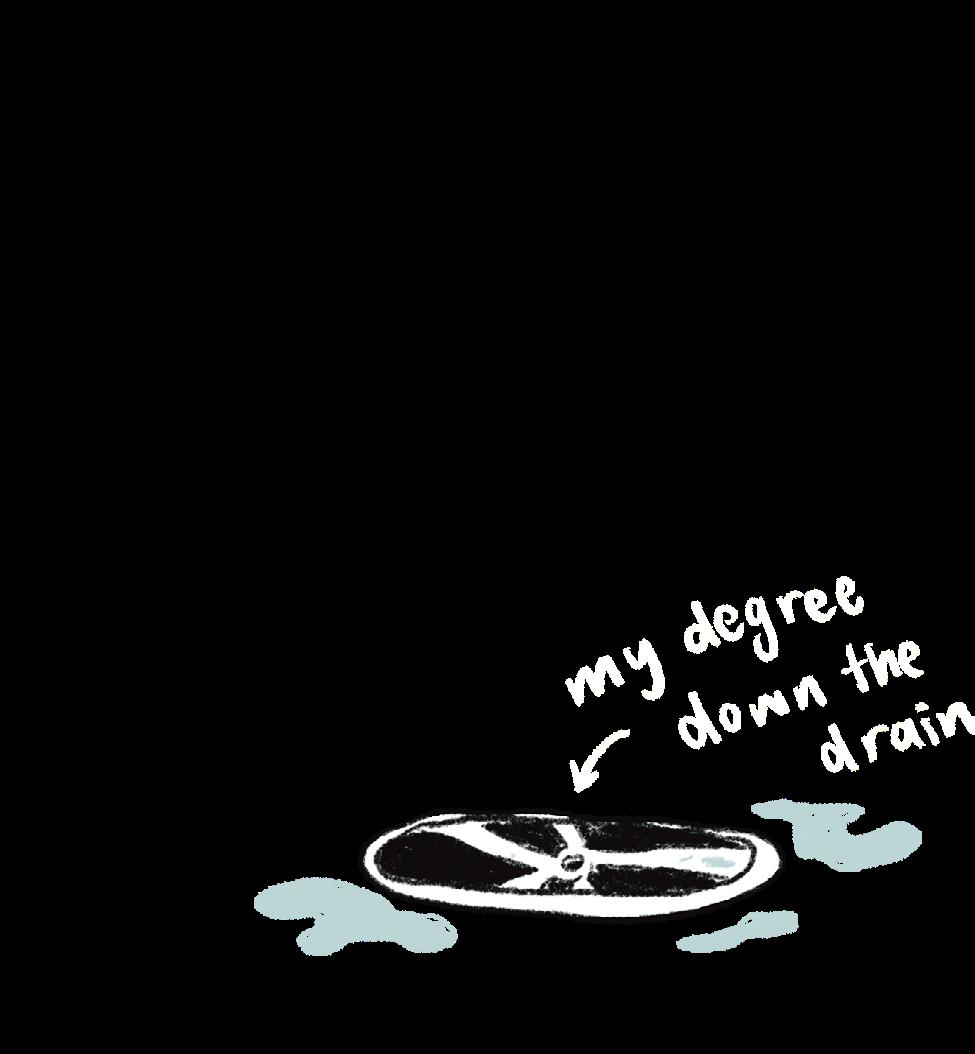
features ahuatanga
 TAUGHT BY SEAN DOUGDALE-MARTIN (they/he)
TAUGHT BY SEAN DOUGDALE-MARTIN (they/he)

Yeesh,
that’s a shame
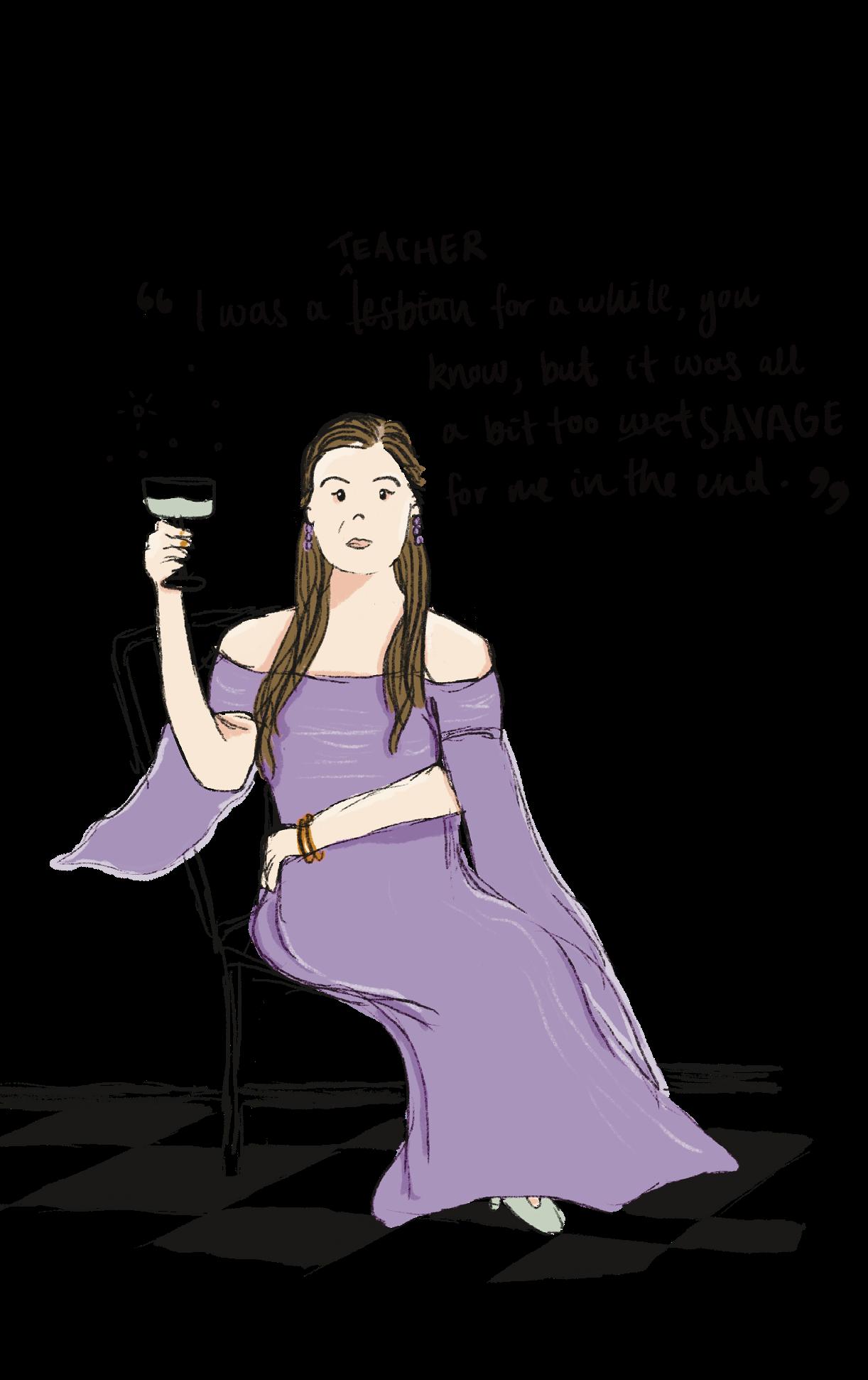
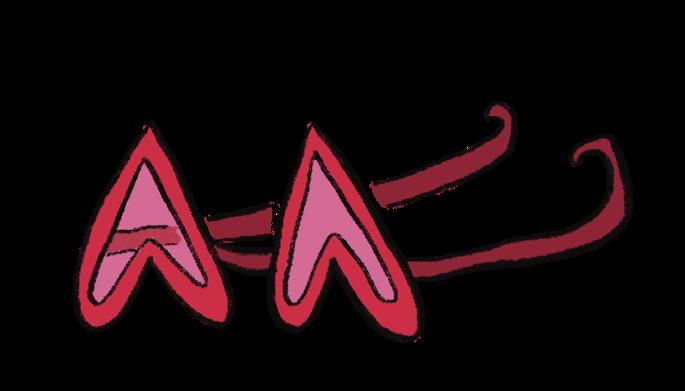
There was a time at Wellington High School during Covid where everyone had to wear masks. During my placement at Welly High the restrictions lifted for a bit, and one day I removed my mask. A Year 10 saw the lower half of my face for the first time and immediately remarked “yeesh, that’s a shame.”
At the beginning of teachers training you are rec–ommended to quit any other work you have to focus on the course. I quit two jobs to begin the postgraduate diploma of secondary school teaching and really regretted it. For master’s students who are on placement almost all year round it’s a different story, but I had three placements during the year: one week at Wellington Girls High School, eight weeks at Wellington High School, and eight weeks at Rongotai College. Because the placements are such a deep end, where the lectures once a week are such a kiddy pool, it is make-or-break. The one week placement at the start changes a lot of people's minds. This is generally the week where
page 18 features ahuatanga
features ahuatanga
people realise that teaching as a backup to their arts degree isn’t a great idea.
Outside of these 17 weeks I was at uni two days out of seven in any given week. I didn’t find it too challenging to keep on top of studying during the other five days, but I was dedicating a lot of time to freelance and contract work just to stay afloat. I ended up being a dogsbody at Circa Theatre helping put up and take down sets, looping cables, organising tools and stuff like that.
Every single person who has gone through teachers training college will have something critical to say about it. To what extent that is a complete indictment of the course vs a mere illustration of teachers having heaps to say about everything ever, who knows! I will say that the lecturers do their best; they are always coming from a good place, and trying to do better for the kids.
Education can be quite a savage arena. The longer I am in the industry the more I have learned about interpersonal politics between teachers in the classroom, lecturers at teachers training college, and those working at the Ministry of Education. Front-line teachers can be quite critical of lecturers and MoE. Teaching is the trendiest profession, and it’s staggering to recall how much the culture has changed even during my short three years in the job. Because of this, instructors at tertiary teaching courses may not be taken seriously since, after all, when was the last time they actually utilised the strategies they are teaching?
There is no best way to teach, and part of me thinks the criticism of lecturers comes from a place of resentment for any teacher truly knowing more than any other. The job is hard. Kids will tell you the meanest things for no reason, just because they can. They have to be there and some of them hate that, you are paid to be there and aren’t allowed to be upset. The position of teacher is one where you are always improving, realistically this is just like any other job, however the stakes are quite high when dealing with children—you do always wish you could just get it right. However, it is never so simple.
One time in ‘23 I bleached my hair. It was my second year at Newlands College and I felt confident and stylish. I walked into my form class and the first thing any of the students said was “do you just wake up, look in the mirror, and lie to yourself?” I find stuff like this funny, but this is one of the more comedic times a student has said something challenging. To


work through the actually challenging moments it pays to have strong decompression methods. I free-write as one of mine but I also have a strong network of friendly teachers where I work. Both of these have been necessary for getting through the rougher stuff kids put you through.
I love teaching. It’s gotta be one of the best jobs in the world. I think everyone should teach something at some point in their lives. Not in a high school setting specifically but the act of trying to teach another human, or a group of humans, builds a sense of communication and perspective that I think is necessary for everyone. How can I put this in an accessible way where this person will understand and not try to hit me? The tools that I’ve learned from teaching are tools that I personally use in my day to day life, improving how I interact with other humans.
There was a student at Wellington High School who wrote me a letter during class. When he handed it to me I saw my teacher's name and a love heart on the front. It was the first time I was worried about a student having a crush on me.
I didn’t open the letter in the class—students having crushes on teachers definitely happens and you just have to deal with them in due course. I needed to wait until I had my Associate Teacher (AT) present after class to open it, so I kept on teaching. The student who handed me the note was acting up a lot this particular lesson, really giving it all the gas his ADHD could afford him. I was knackered by the end of class and couldn’t help but feel as though his tiring behaviour was linked to what was in the letter. My AT assured me that no matter what is in the letter you can’t control how kids feel, you can only put strategies in place to work with what’s in front of you. So we opened the letter. It simply said “sorry Mr Burns for the rest of the lesson. I’m feeling quite evil today and I’m going to act up quite a bit so I apologise in advance.” The relief that washed over me knowing there wasn’t a kid who had a crush on me in the training year was almost counteracted by my awe at the forethought of this kid writing an apology in advance.



salient. 03 ACADEMIC

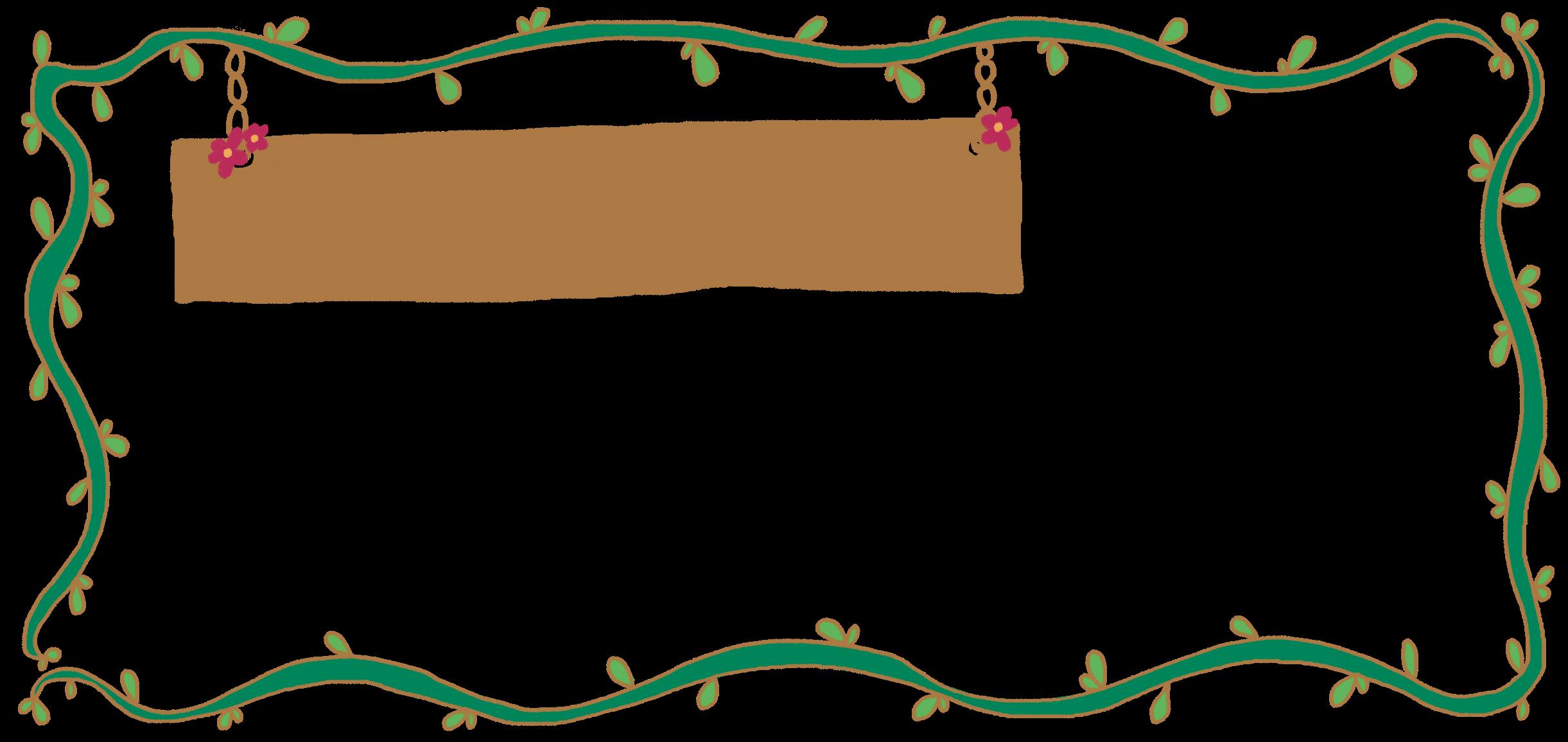
About this week's Artist
This week's centrefold is designed by Jaymee Frater Jaymee is an artist, film student and fairly new Wellingtonian. Her art mostly features high saturation fan art, collaged sketchbook spreads and funky character designs. Jaymee draws to express their passions, tell stories and represent herself and her friends. Her mediums of choice are often gouache, watercolour or digital. She's inspired by all things whimsical and likes to use art as a continuous time capsule of her life, with sketchbooks dating back 10 years. You can find Jaymee on instagram @springjamz.


Aries Taurus Gemini
You’ve been feeling yourself lately. Self confidence, we love to see it! That being said, you don’t actually have to put others down to bring yourself up.
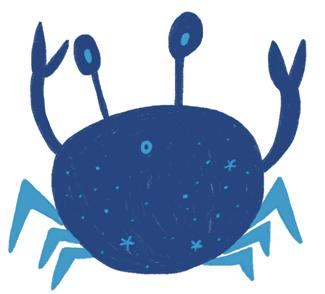
Embrace peace and serenity in your life. Be like the Lofi girl. Put on some hip hop beats, park yourself at a desk and get stuff done.
People have come to you to mediate a tough situation. You’re going to have to balance logic and emotion in this exchange, even though it’s really not your strong suit.
Cancer Leo Virgo
You’ve been struggling with some impulsiveness lately. Life’s short, but not short enough that your actions don’t have consequences.


You’ve set your sights on what you want and nothing is going to stand in your way. Failure is simply not a word in your vocabulary. You’re such a Leo right now.
Okay little Mx perfect, you probably don’t need to put your work through Grammarly every two words. I admire your focus on your craft but loosen up a little would you?
Libra Scorpio
Libra you are in your head right now. There’s a difference between planning stuff out/being prepared, and procrastination. Stop thinking and make your moves!

Capricorn
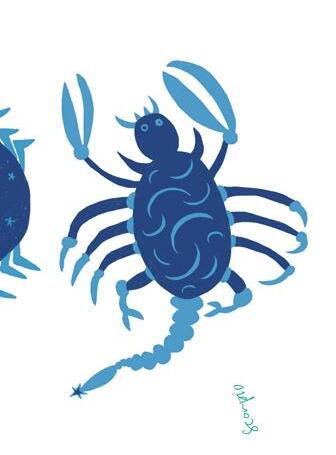
First weeks of class were kinda tough. You might be stuck on adifficult assignment already. You can always start over, extensions exist for a reason.
Aquarius
You better work b*tch. It’s okay to admit you're a bit broke right now, maybe you need less craft beer and fine wine, and more shifts at work.
You’re not pulling your weight when it comes to flat amenities. I see you skimping on the dishwashing liquid, also when’s the last time you bought the toilet paper?

Sagittarius
It’s time to pick up another hobby, you simply do not have enough. Choose one that requires a lot of tools and materials, like screen printing or being a magician.
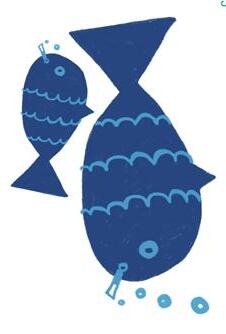
Pisces
There’s deception in your midst. Things aren’t lining up. Someone you know is being a little shady or maybe you’re just deceiving yourself?
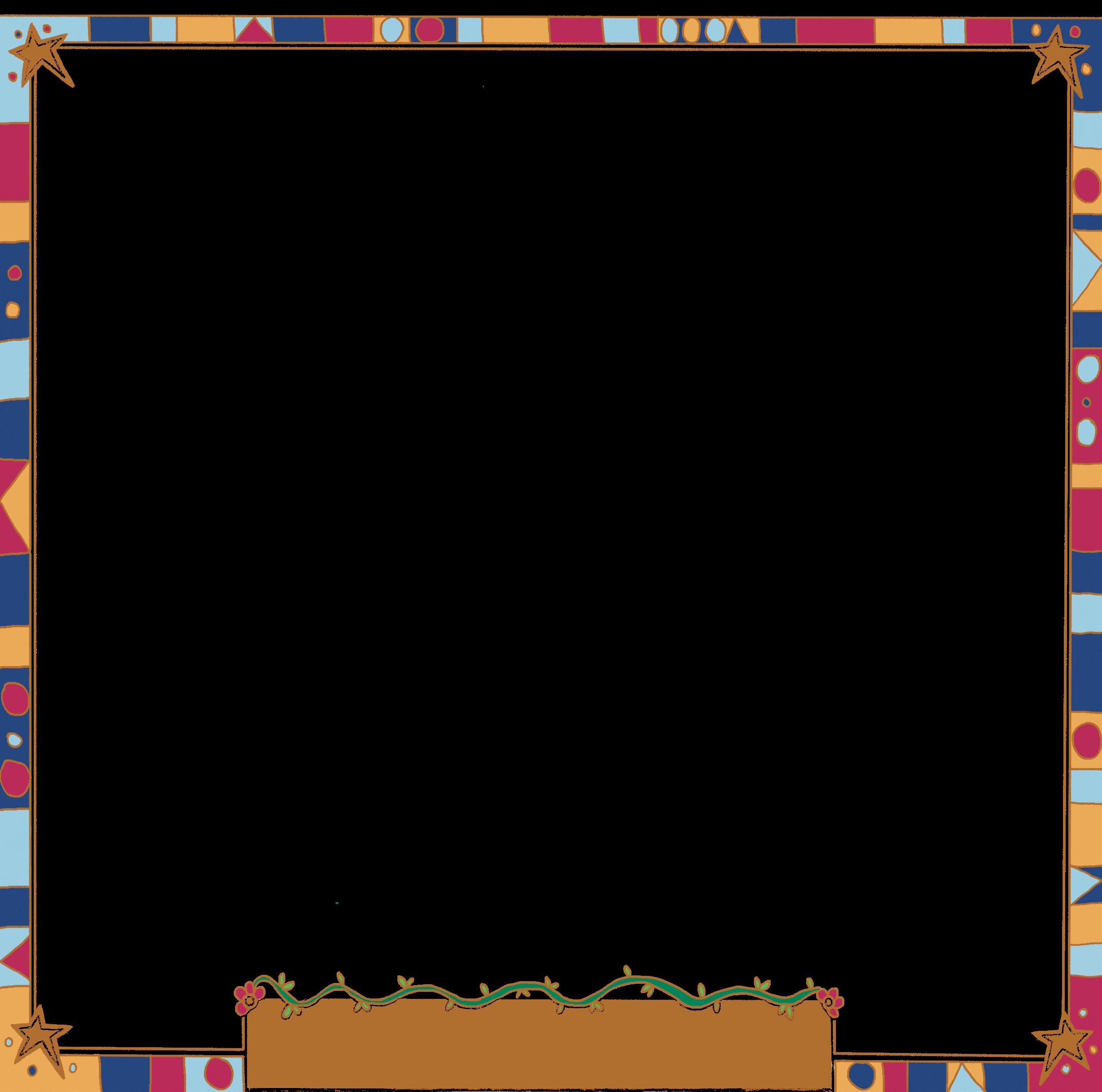
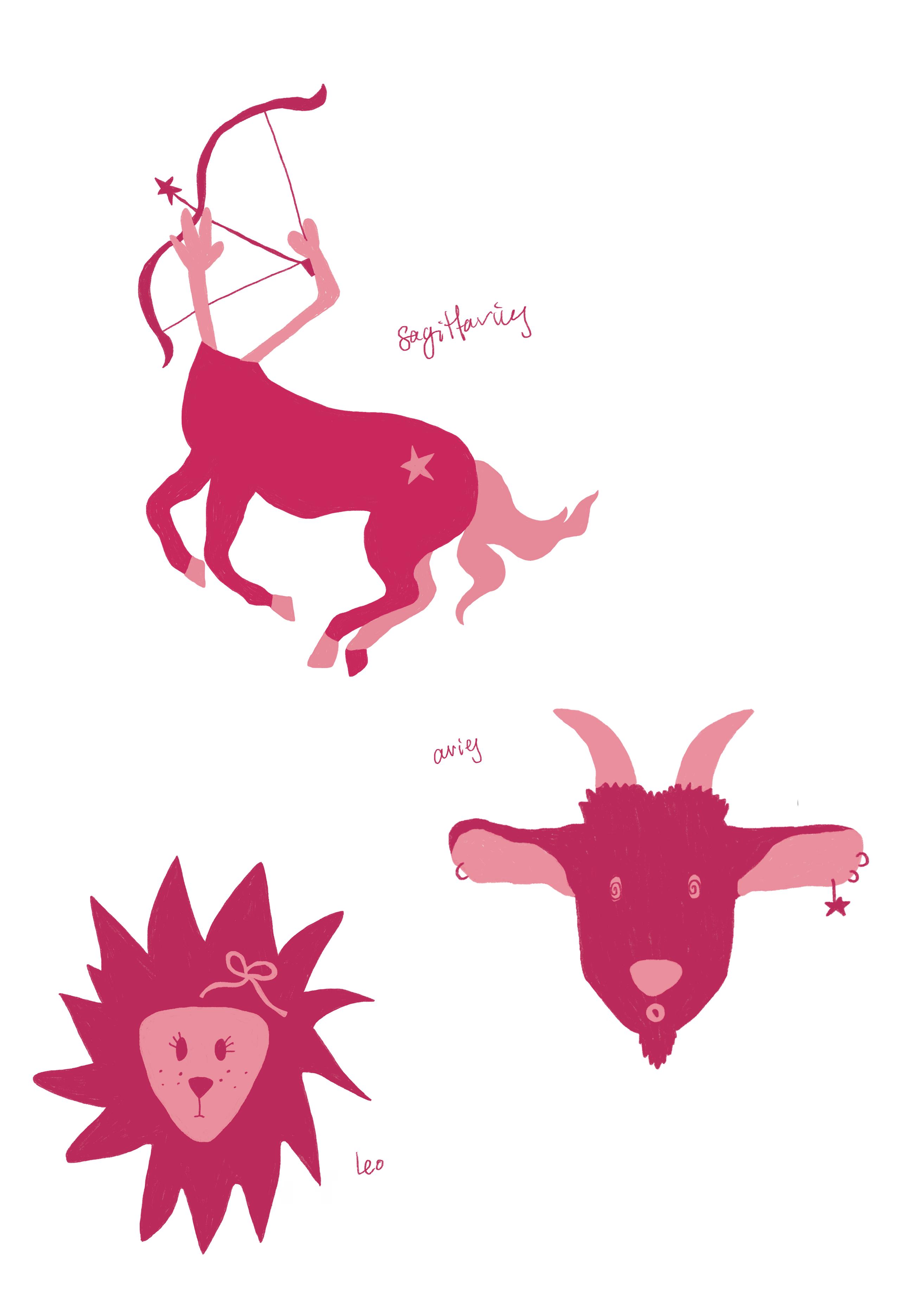


ON BONE
etched by Phoebe Pierard (she/her)
As I prepared to present my undergraduate research project at a conference in Melbourne, a small fish in a sea of established academics, I couldn't help but reflect on how different this was from what I had envisioned for my summer research scholarship. My subject, ‘Reading Scrimshaw in Aotearoa’, was all about unearthing the largely forgotten folk art of etched and inked whale teeth. Through this project I worked to illuminate the ways in which material culture can be a valuable history-keeping source.
Scrimshaw is the traditional art of carving intricate designs onto teeth or bones. This practice has its roots in maritime culture and was particularly popular among sailors during long sea voyages. These skilled craftsmen, known as scrimshanders, would meticulously etch detailed images onto the ivory-like surfaces, often featuring nautical themes, ships, or marine creatures. While scrimshaw originated in other seafaring nations, it has become a part of Aotearoa's cultural fabric, reflecting the country's strong connection to the ocean and rich maritime history.
I spent countless hours sitting in the garden with my laptop, meticulously documenting any instances of scrimshaw that I could find in the museum databases of Australia and Aotearoa. I combed through the National Library and even travelled to the Waikato Museum for their exhibit "Scratching the Surface" and the Butler Point Museum in Hihi. After all of this research, presenting in Melbourne would have felt like the perfect conclusion to my project.
At the first challenge, defining the term 'scrimshaw', it became clear that the art form in Aotearoa and Australia had its own unique perspective. Most information is from America, where whaling was most prominent. This was especially problematic when reading literature such as Dr Stuart M. Frank’s Dictionary of Scrimshaw Artists . His definition of scrimshaw seemed at odds with what I had encountered in the Southern Hemisphere. Dr Frank stated that even works made in the same style and technique as scrimshaw are of a different “genre” if made under other circumstances than traditional nautical sailors’ scrimshaw. For instance, prisonerof-war art from the Napoleonic wars and powder horns are often conflated with scrimshaw despite being made under differing circumstances and with varied materials. Frank was referring mainly to the case of scrimshaw in America, where engraving powder horns “anticipated later scrimshaw techniques”.
page 23 features ahuatanga


As well as reflecting how Aotearoa was colonised, the depictions on individual scrimshaw challenged me to push the definition of ‘literature’ itself.


directly linked to the sea. Whether the scrimshander learnt at sea himself or from those who had, it is most beneficial to group these as one. Powder and bullock horns often feature ships despite not being made of whale teeth. Likewise, whale teeth not only feature nautical scenes but often depict scenes from newspapers, paintings, and other images from daily life, such as birds, which are also present in different modes of scrimshaw art.
As well as reflecting how Aotearoa was colonised, the depictions on individual scrimshaw challenged me to push the definition of ‘literature’ itself. Unpacking these definitions, and identifying commonalities between these three modes of scrimshaw art (prisoner of war, nautical, and bullock horns) allowed a new view of scrimshaw. The art form was revealed to be deeply literary.
Part of the joy of being able to take on such a project at undergrad level was that I was encouraged to approach the research with an interdisciplinary lens. I had to reconsider what it is to ‘read’ and how art denoted as a craft and associated with illiterate, unknown sailors opens the scope for considering neglected pieces of history as material culture.
found directly in the newspaper periodical Illustrated London News, which artists used to prick the outline of images they liked to recreate on scrimshaw. More than just connecting it to current affairs on the other side of the world, these illustrations reflected settler ideals and the sense of displacement and desire for home. Often pictured is art from the Royal Academy exhibitions, decorative cups from horse races, and women shown upholding domesticity and civility, often shown reading to small children.
While there are limitations to art such as scrimshaw, in that there is often a need for provenance due to its neglect within academia, working with such rich material culture raises the question of what histories we legitimise. Scrimshaw, often unmarked and made by illiterate whalers, tells the tale of those otherwise lost to time. It is a clear, rich source for understanding the circumstances of those who created it. The specificity of researching such a topic in Aotearoa allowed for a greater scope and non-traditional approach: broadening definitions and thinking with an interdisciplinary lens, which must be applied to other forms of material culture that enrich our understanding of history.
page 24 features ahuatanga

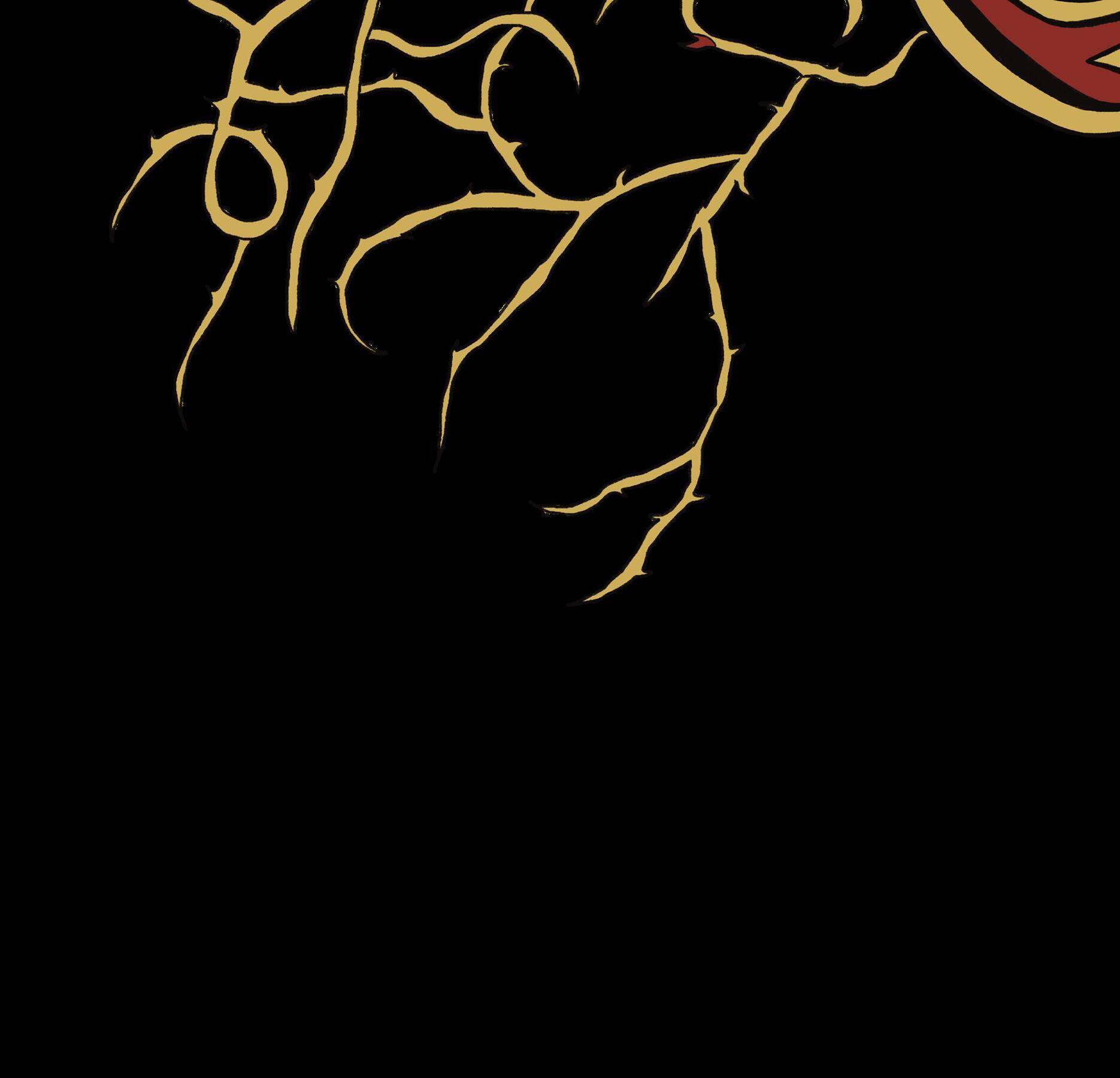
Behind the Podium
you were?
Since 2013, Nicola Hyland has been a lecturer in the theatre faculty at Te Herenga Waka. Every time she enters the classroom, she feels a sense of surreal nervousness, as if the entire room is waiting for her to begin. She admits that when she first started teaching, she would strictly stick to a script. Even now, some of her colleagues "practice" and "script" their lectures. But over time, Nicola has grown more comfortable in her role and no longer relies on a script. Instead, she focuses on connecting with her students and tailoring discussions to their individual interests. She brings up the concept of akoranga, and that teaching and learning are a mutual relationship not exclusive to each other.
Speaking of the class as a whole, yes, she can see you making out at the back of the room. And no, she doesn't plan on saying anything about it. She observes the loud and outgoing students, but also pays attention to the quiet ones. As a theatre lecturer, it's not the loud students who catch her eye; it's the ones sitting alone in the back.
In what I thought would be a casual and lighthearted conversation, Nicola opens up about the most challenging aspect of being a lecturer: worrying about her students. She explains how she, along with other lecturers, takes notice when students are struggling and feels genuine concern for their
wellbeing. However, this must also be balanced with maintaining professional boundaries, while still being
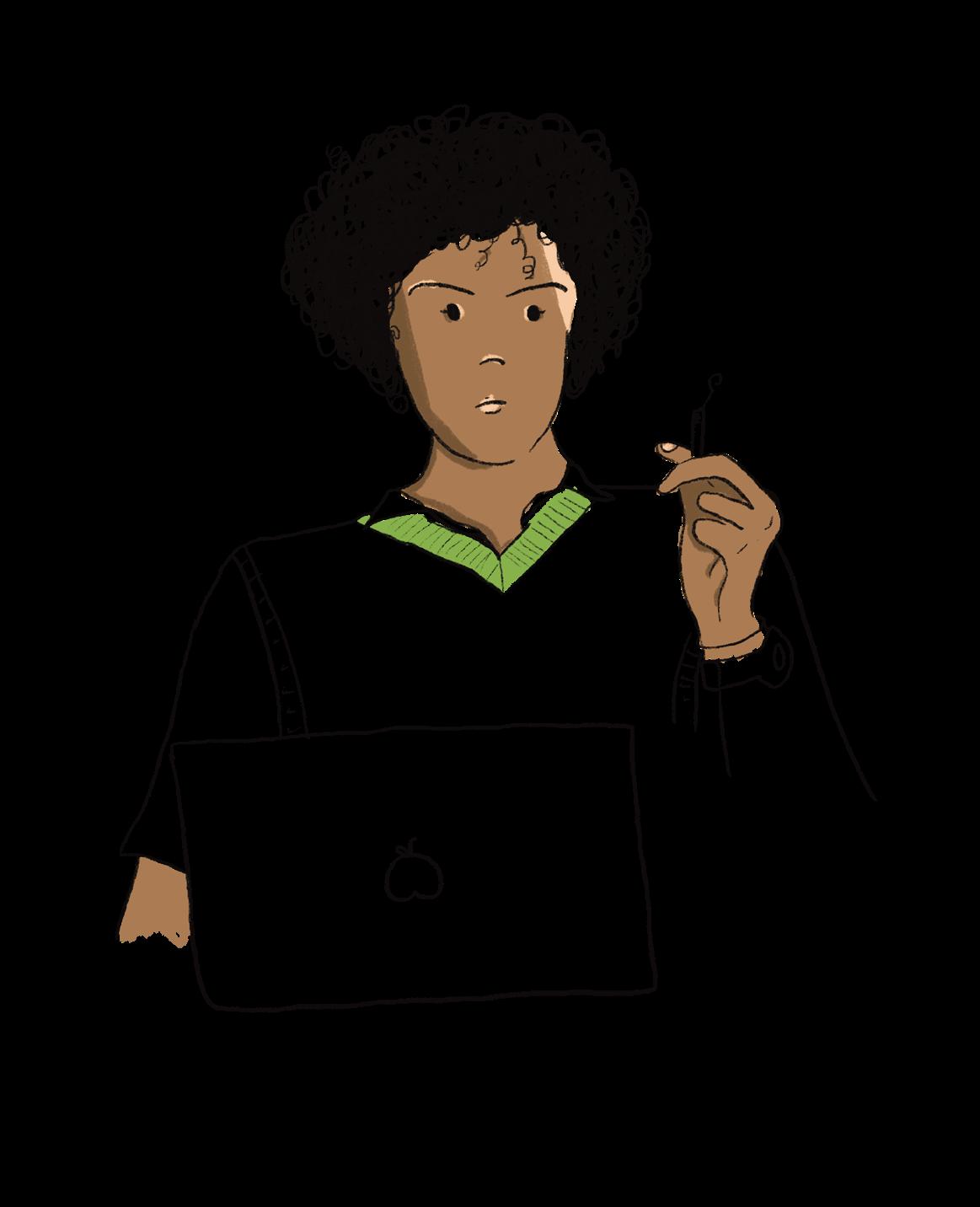
She frequently that university is challenging, and it's completely normal to feel overwhelmed. Giving extensions on assignments is a straightforward decision for her because she understands that students request them out of necessity. The context doesn't matter—what's important is that they are struggling, and need extra time. She emphasises how much academics want their students to succeed and pass their courses. For her and her colleagues, their main goal is to support and guide students towards success; it brings them great joy when they see their students achieve great things before and after graduation.
As we discussed the recent budget cuts affecting teachers, arguably the most significant university news of 2023, Nicola opened up to me about the pain and disappointment felt by the academic community. She shared that it was a moment of growth for her as she realised who her true friends and allies were, and was amazed by how many students stood in solidarity with the faculty. She expressed admiration for their dedication, as they balanced exams, lectures, and part-time jobs while participating in protests and supporting their teachers. This was, she says, particularly evident within the theatre programme.
The conversation left me with one main takeaway: the lecturers, those individuals who spend their days lecturing and sending stern emails when assignments are late, truly have your best interests at heart. It's a sentiment that is too often absent in discussions about lecturers within our academic community. Their genuine concern for our success is something to be valued.
page 25
features

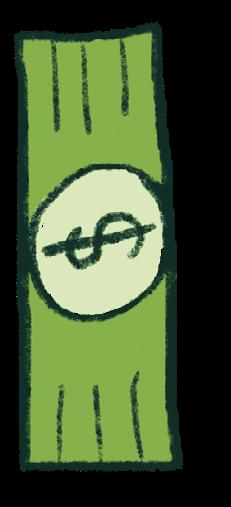
Learning Paycheck to Paycheck
gently explained by Pierson Palmer (he/him)

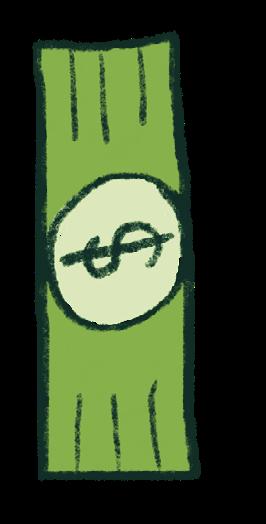
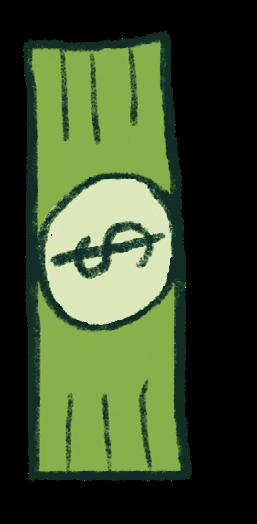
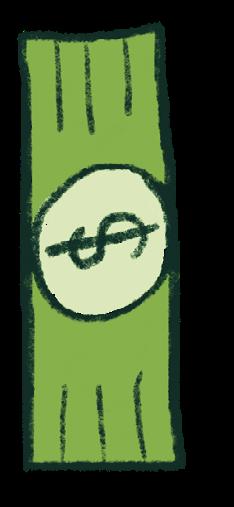

If you aren’t worrying about money, someone you know at Uni is. The financial pressure of student living is often seen as quintessential to the tertiary experience. It's been that way for a while, and things aren’t improving. Most students will experience the crunch of inflation, and support systems that aren’t responding. A survey by NZUSA found that 72% of us have experienced stress or anxiety due to the rising cost of living. Being a young adult is overwhelming as it is. New responsibilities, experiences, and people fill your first years away from home with highs and lows. It can be easy to let uni fall by the wayside when demands on your time pull you in so many directions. That’s why a few countries, notably our enlightened friends in Scandinavia, have comprehensive financial support systems for those who study. The idea is that, at such a crucial point in one’s life, you should spend as much time as possible learning and preparing yourself for the future. Not scrambling to get rent paid on time. It all sounds very nice, and what’s frustrating is that we had a system like this
So here was the deal back in the '80s. You got an allowance, then called a bursary, for attending university. That's it. No means testing, no invasive questions about your love life or your family’s financial situation. It was enough to cover your tuition, housing, and living expenses. It didn’t decrease if you had other forms of income. So working just 10 hours a week would leave you rolling in it. Feeling envy welling up inside of you yet? Personally, when I found this out I wanted to flip a table. Take a moment to snap a pencil. It helps.
The once freeing and empowering financial assistance that liberated whole generations of students is long gone. Carved up and whittled down and eventually transformed into Studylink. I won't detail the mess that is Studylink, it would take up 3 pages. For my own sanity I try to visit their goofy, 2000s looking website as infrequently as possible. But statistically, you've likely got a student loan, and even if you get the allowance it has much less buying power.

It's not just financial assistance, students are being squeezed from all directions. Housing is more expensive and of low quality, and many students are forced to work part-time on top of a student loan just to stay afloat. All this is to say, it's fucking hard being a student. If you feel like you're drowning, you're not alone. NZ is in the midst of a youth mental health crisis. Mauri Ora can’t just give us all antipsychotics, Ritalin, and a weighted blanket and call it a day.
What would you do with your time if you didn’t have to worry about money, or spending your precious youth harassing your landlord to deal with the black mould creeping up the wall? How much of that lecture would you take in if your hospo job didn’t leave you knackered? What would your grades look like if you didn’t waste an hour a day commuting from a far-out suburb just to afford rent? How can we be expected to study like those fortunate students of the '80s, who could easily cover their expenses and still have a little spending money?
You're lucky if your study hasn’t suffered in some way. Working while you study can interfere with regular class attendance. Piling shifts on top of lectures leaves you tired, distracted, and scrambling to catch up. Stress screws with your ability to retain information. It leads to health issues and can ruin a period of your life in which you should be discovering who you are, finding new passions, hobbies, and friends. As an interest group, we keep getting the short end of the stick. You should be socialising! You should be learning. That should be your focus.
At the end of the day, being a smart cookie (yes, you) will only get you so far. You've probably seen headlines asserting the importance of stability, nourishing food, and play, to a child's education. That doesn’t change just because you're all grown up. Your time, in what should be one of the most freeing phases of your life, has been slowly stolen from you.
Whether you like it or not, your academic performance is all tangled up with the rest of your life. (Good luck getting that essay in on time with black mould induced asthma). You need a financially stable, healthy, and balanced life outside the lecture theatre to do the mahi you’re truly capable of. It's all a bit depressing, and given the policies of the current government, seems a little hopeless. Focus on what you can control. Take mental health breaks, try to prioritise yourself where you can. Take advantage of all the help the Uni will give you. Talk to your VUWSA reps. Let the wonderful folk at the student success team look over that essay. The system may be working against you, but Vic is still full of people who want you to succeed.

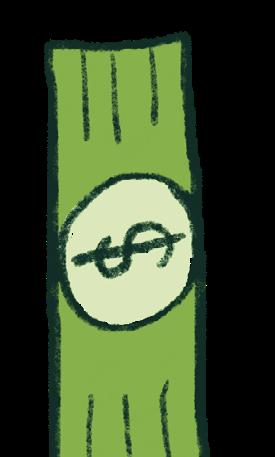
page 26 feature ahuatanga
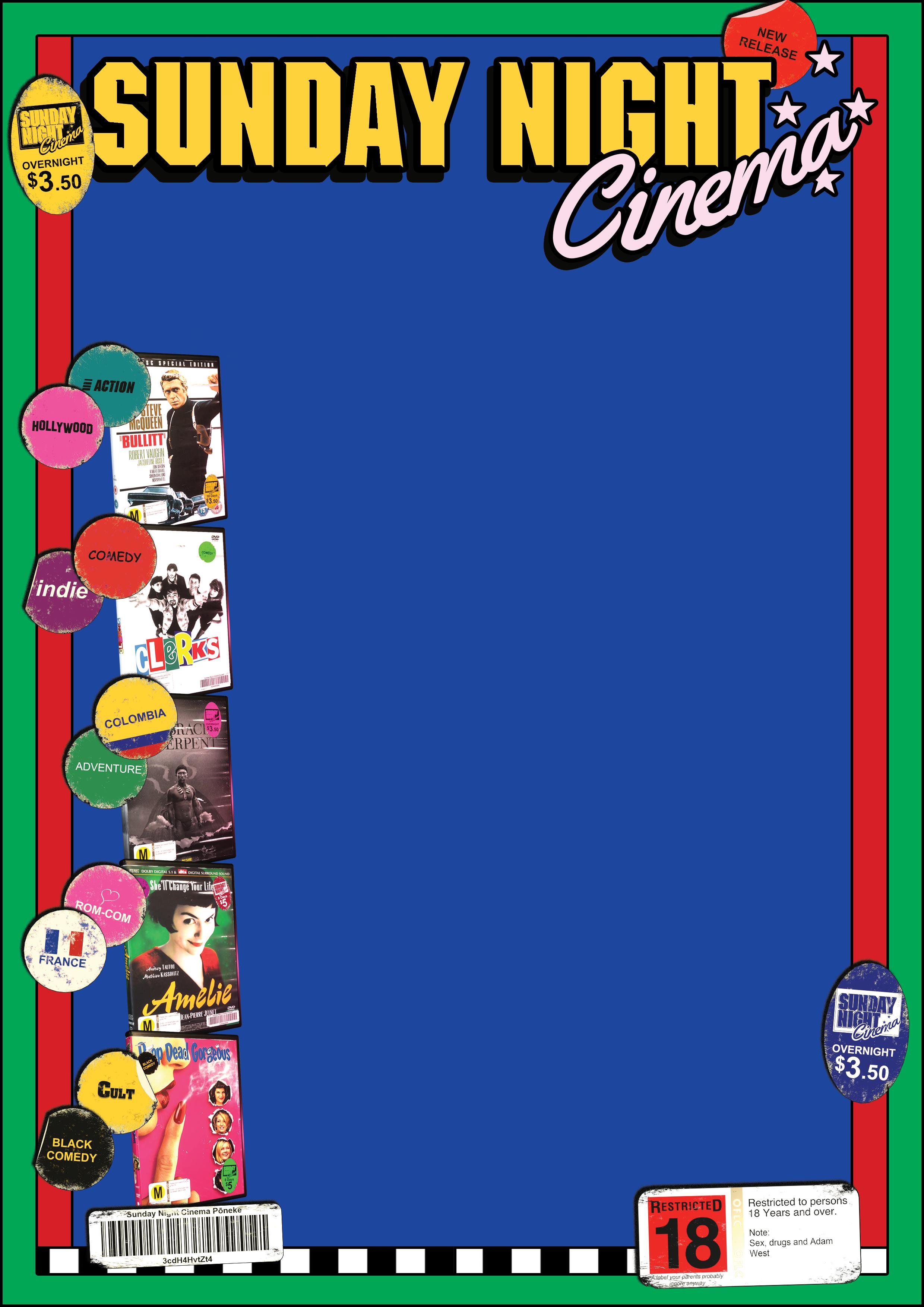
Ethan Wolfe (he/him) | Design Nathan Russell (he/him)
Movies have been a life-long passion of mine, I love their ability to transport you, to make you think, and to entertain. My favorite part of watching movies is pushing myself out of my cinematic comfort zone, and discovering new films to fall in love with. In this column, I hope to share this joy of discovery with the reader through this selection of five movies, perfect for a lazy night at home.
Bullitt (1968) - (Action, Hollywood):
A neo-noir, action, and thriller that delivers on all of its promises. The action makes great use of practical effects, the mystery is genuinely thrilling and makes you want to find out how it ends, and the story and acting is surprisingly nuanced and thoughtful. In a modern action movie status quo of watching two CGI monsters fight each other with laser beams, there’s something refreshing about an action scene that’s just a slick old-school Mustang flying down the San Francisco hills, in pursuit of the bad guys.
Clerks (1994) - (Comedy, American Independent):
An intensely clever independent comedy that revolves around the lives of minimum-wage store clerks. It shines in its ability to capture the confusion and aimlessness of that odd period of life where you’ve become a real adult but you’re still terrible at it, and by doing so in a way that lets us laugh at. Filled with snappy dialogue and absurd humor, Clerks helps remind all of us stuck working low-level dead end jobs not to take them too seriously, and that they are as dumb as you think.
Embrace of the Serpent (2015) - (Adventure, Colombian):
A truly epic adventure through the Amazon, centered around an Indigenous man who guides two different European explorers through the jungle. Consciously they search for a medicinal plant, subconsciously for self-discovery. While most adventure films focus on the hero, with the foreign locale serving as more of a background, Embrace of the Serpent sets a different tone, the explorer almost totally at the mercy of his environment. A walk through the jungle as well as a walk through Colombia’s history, Embrace of the Serpent manages to both entertain and fascinate.
Amélie (2001) - (Romantic Comedy, French):
Where most movies allow you to become a spectator to another time, place, or world, Amélie pulls you into the world of the main character, allowing you to experience the story from her perspective, rather than just watching it. Amélie is shy, with few friends, and finds the joy in life through simple pleasures and through her imagination; the world of the film takes on a fantastical tinge where pictures can talk, and what’s happening in real life is often interrupted by sequences of her frequent daydreams. Much of the charm of the film comes from the supporting cast, studded with dreamers, neurotics, tragic lovers, bullies, and other loners. Amélie presents a simple but well told story about a girl falling in love, enhanced by a visual style that constantly excites, which in my opinion, is almost infinitely re-watchable.
Drop Dead Gorgeous (1999) - (Black Comedy, Cult Classic):
A mockumentary about a teen beauty pageant in rural Minnesota that joyfully bashes commercial femininity, loud ignorance, and arbitrary competition—without allowing the tone to become too dark or depressing. Mockumentaries gained popularity in the 80s with the release of This Is Spinal Tap in 1984, but very few managed to strike the balance between keeping it real enough to feel human, and absurd enough to be comedic. Drop Dead Gorgeous executes this balance masterfully: the characters are charming and hilarious, and splashes of dark absurdity toss them into even funnier situations. It’s the best mockumentary I’ve ever seen, and a great piece of cinema in general.
WIKIPEDIA'S LIST OF NEW ZEALAND'S
THINGS BIGGEST RANKING
words lovingly crafted by Stephen Woods (he/him) & Phoebe Robertson (she/her)
Aotearoa boasts an abundance of unique items: kiwifruit, sheep, and craft beer are just a few. But did you know it is also home to many oversized structures? This cultural trend may stem from Aotearoa's small size. So, we decided to rank Wikipedia's likely incomplete list of the country's biggest things.
33. The Big Parsnip (Ohakune)
Be warned: if you've never seen this before, prepare yourself for a bizarre sight. Is it the unsettling resemblance to a pornographic version of Veggie Tales? Or perhaps the addition of shoes? Some say it's the oddly smooth and "sexual" legs, but either way, this one takes the top spot as the worst on our list.
32. The Big Sandfly (Pukekura)
Why was this fly suspended in midair? While it may just be a fly, hanging it outside only adds to its creepy factor. We couldn't help but ask ourselves, "What on earth?"
31. The Five Clydesdales (Clinton)
Surprisingly, these horses don't live up to their name as being particularly big. They're just slightly larger than average horses. Perhaps their dizzying numbers are what earned them a spot on this list?
30. Harbour Mouth Molars (Dunedin)
These things are absolutely terrifying.
29. Big Kiwi (Ōtorohanga)
It's a corrugated iron kiwi with the New Zealand flag painted on it. Despite its kiwi shape and national pride represented by the flag, it still feels distinctly American.
28. The Big Loaf (Manaia)
Why is this loaf of bread so wrinkly? It reminded us of a child's drawing that grows on you over time. Similarly, the Big Loaf somehow grew on us despite its unappealing appearance.
27. Big Bicycle (Taupō)
We're not entirely sure if this one still exists, or if it was just a fleeting moment in New Zealand's history. Either way, Stephen questioned whether it could even be considered a bicycle if it couldn't be ridden. He argued that it was simply bike-shaped and non-functional.
BI page 28
26. Big Dairy Whip (Tatuanui)
The previous Big Dairy Whip was a disaster, but it blew up and was replaced with a slightly improved version. We stumbled upon a Stuff explosion, which included a quote from someone who drove by and noticed the damage the next morning, saying "wow, what happened here?" Maybe our issue is not with Big Dairy Whip itself, but rather with Stuff
25. Big Sheep Shearer (Te Kūiti)
Disappointing, as it's not a large attraction but just a large man. The photographs make it seem like it has been neglected. Phoebe believes that Wētā Workshops did a better job with their big men.
24. Surfer Riding A Wave (Colac Bay)
Once again, not a notable feature, just an oversized statue.
23. Big Sausage (Tuatapere)
The excessive amount of grill marks raised our concern. If this was a normal-sized sausage, the grill must have been tiny to fit 10 marks on it. It breaks the suspension of disbelief.
22. Big Doughnut (Springfield)
There are scientific inaccuracies within the design; for instance, the jelly filling in a donut with a hole is illogical. We can't even bear to look at the donut anymore; a huge disappointment.
21. Big Fruit (Cromwell)
Why are they clustered so closely together?
20. Giant Oystercatcher (Kaiaua)
It is decent enough; its Māori name is Torea* Mangu. However, nothing stands out about it.
*Note from Te Ao Māori Editor - the name given by the Artist has no tohutō but the name of the bird does - Tōrea.
19. Big Trout (Taupō)
Slightly artistic and sculptural: a flying trout.
18. Jandal On The Mandel (Between Kopu and Thames)
A fence surrounds it, obstructing what would probably be an excellent view, making sitting on the "Big Jandal" an unenjoyable experience: 10/10 Jandal, 0/10 view.
17. Big Kiwi (Eketāhuna)
Why does it wear gumboots? Does it really have gumboots on? It looks like it does; likewise, it seems to be made from paper mache and isn't kiwi-colored, which is disappointing.


IG arts & culture ahurea
16. Big Wheelbarrow (Hokitika)
It is significantly larger than a typical wheelbarrow and serves its purpose effectively.
15. Big Pāua (Riverton)
Initially, we were not impressed by this sculpture until we learned that it was made with real Pāua shell, which earned some respect from us. At least it accurately represents what it's supposed to be.
14. Big Apple (Waitomo Caves)
This could be the perfect opportunity for Taika Waititi to produce a film adaptation of James and the Giant Apple.
13. Big Kiwifruit (Te Puke)
Stephen has fond memories of climbing on this sculpture as a kid, but it's unclear if that experience shaped his lifelong love for kiwifruit.
12. Big Bull (Bulls)
Bulls and more bulls.
11. Big Takahē (Te Anau)
We have only one question about this sculpture: where are the Takahe's eyes? It's impossible to see them in any photo, but as bird enthusiasts, we still appreciate this piece.
10. Big Kōwhai (Napier)
We both desperately want to climb this sculpture. It looks like forbidden monkey bars or a forbidden ladder. The level of detail is impressive, but the birds perched on top do not accurately reflect their size, which ruins the illusion a bit.
9. Big Crayfish (Kaikōura)
A giant crayfish on a building may seem strange, but the level of detail on this sculpture is surprisingly well done. Phoebe has an aversion to the number of legs on the crayfish, but that's more of a personal preference rather than a criticism of the sculptor's work.
8. Big Prawn (Taupō)
Phoebe's brother once visited the prawn park, where they give you a net and say good luck. After four hours of trying to catch a prawn, one man left in defeat. However, this information may not be entirely reliable.
7. Big Sheep and Sheepdog (Tīrau)
Stephen has nostalgic memories of his childhood visits to this park and refuses to see it as objectively ugly. He even defends the large piece of leather sticking out of the dog's mouth as its tongue.

6. Mega Cow (Morrinsville)
This cow is much larger than the one in Bulls, with udders at human head height that seem like a design flaw.
5. Big Trout and Big Guitar (Gore)
While the trout is impressive on its own, it's grouped with a guitar because Gore supposedly has a lot of country music—which we both see as a warning sign.
4. Big Salmon (Rakaia)
This sculpture is well-crafted and painted, and its size makes it stand out. The only downside is its slightly terrifying mouth, but overall it would make a great decoration for any flat.
3. Big Lemon & Paeroa bottle (Paeroa)
This one gets two thumbs up for being great. However, Phoebe remembers her childhood experience of getting locked in the talking toilets nearby, which ruined her fondness for this giant bottle.
2. Big Carrot (Ohakune)
Phoebe was rooting for this one to win, but she ultimately lost in a game of paper scissors rock against Stephen. This object is impressive not just for its size, but also for its unique shape. It has inspired both of us to make the journey to see it in person.
1. Big Gumboot (Taihape)
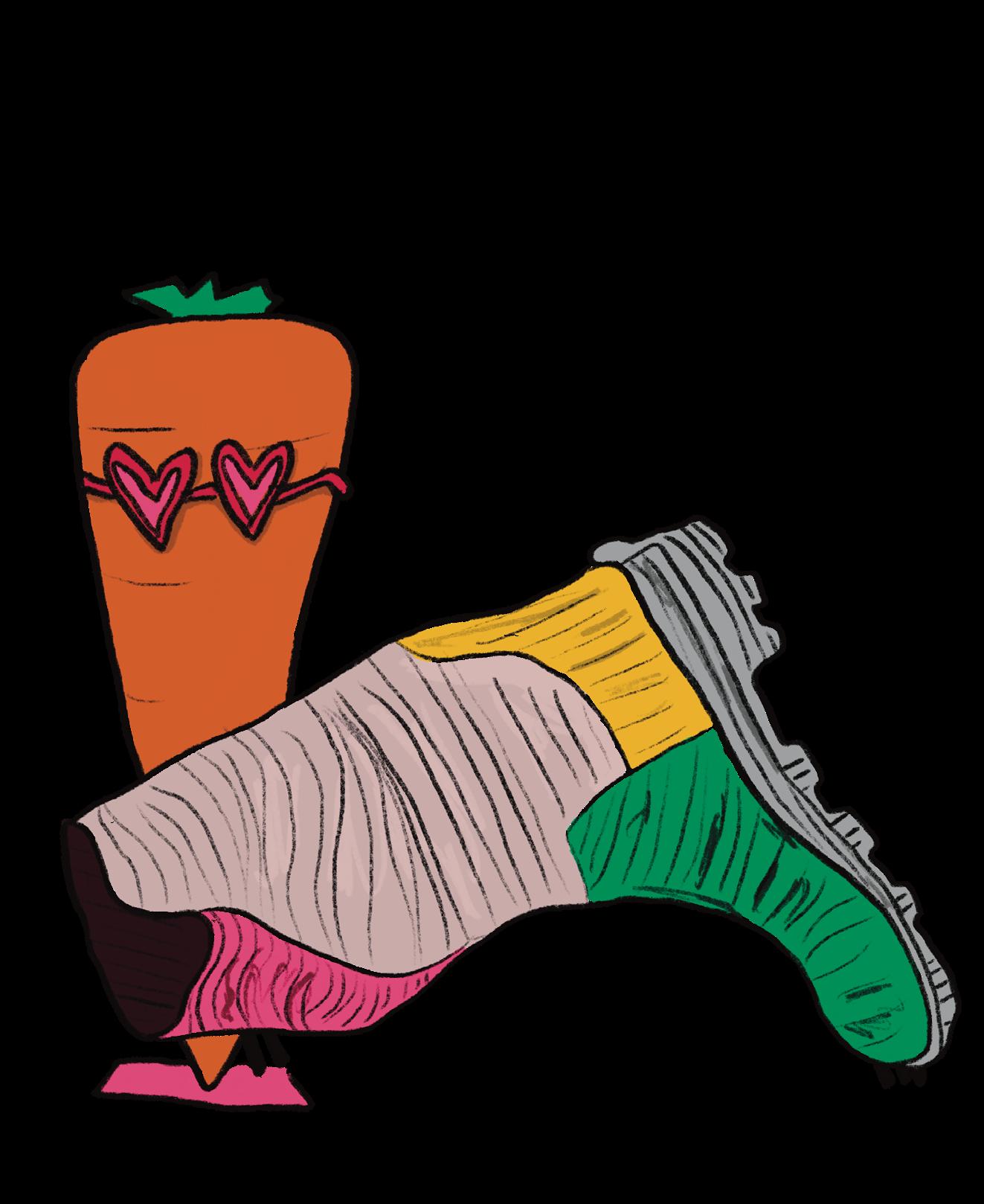
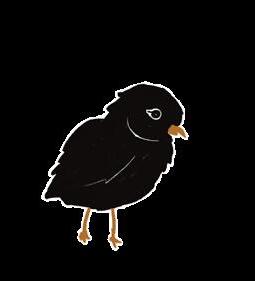
NGS THI page 30 arts & culture ahurea

Aunty Vic dear, Q.
There's this girl I've been chatting with, and she's really cool. We have a lot in common, and she's cute, but I'm not sure if I'm up for a serious relationship yet. You know, relationships can get pretty serious, and I still want to enjoy my youth without hurting anyone. How should I bring this up with her?
Advice xxx
Ah, there's a fine art to expressing what you desire a new relationship to look like. The key is to be honest, kind, and proportionate to where your relationship currently stands. Once, I was chatting to a guy (whom I hadn't met face-to-face yet), and when I suggested hanging out on a Friday evening, his reply was, "I don't think I'm quite ready for a relationship yet." Take this as an example of what not to do, and being totally unproportionate.
Firstly, congratulations on being self-aware enough to recognize that you're not ready for a relationship. This is a step that a lot of people struggle with. However, I encourage you to still think about what you want; it seems like you want to enjoy your youth—but what does that mean? Is that code for “I want to keep sleeping with other people after a night at Red Square?”. As much as you may think that might be the case—exploring new relationships and people is also part of enjoying your youth.
Now, are you just assuming she wants a relationship, or have you had this conversation? There's a common misconception that all girls want a relationship when, in reality, they might just want a spoon on a Saturday night. Whatever the case, you must have a conversation about what you both want. Chances are you may want the same thing. On the other hand, you may find that your desires don’t align, and of course, that raises the genuine possibility of ending what you currently have. The truth is, if you raise the point that you don’t want a relationship, she has every right to abandon ship. Not everyone can

handle being ‘casual’, and fucking fair enough. If that is the case you must give her space and respect her decision. Failing to do so is only going to guarantee one thing—you will hurt this person.
But how do you have this all important conversation? You’ve got two options: in-person, or via message. I would strongly suggest having an in-person conversation, as it’s easier to be sincere and honestly just shows the other person way more respect. However, not right after having a rag—have some fucking compassion. On the other hand, sending a message online means you can ensure you can share everything you want to say, re-craft it a couple of times and add a few lover-heart emojis yano? But it does seem less genuine, and there’s a good chance your message will be sent to her group chat and ridiculed by five or so of her closest friends. Whatever you choose, it should be reflective of where your relationship is at. If you’re going out on dates a mere text makes you a bit of a shitcunt, and if you haven’t even kissed yet, a big heart-to-heart saying “I don’t think I’m ready for a relationship” is straight-up psychotic.
If you’re not ready for a relationship because you’re enjoying being single—that is okay. But let’s normalise not leading people on. The most important thing to do is to communicate where you’re at this with your partner in a respectful, sincere and honest way. Stating this won’t necessarily mean an end to what's happening; but it is ensuring that you and your buddy have the same expectations.
Need a hand?
Send your anonymous questions here!
e

NGS THI columns
page 31

VUWSA |
Ai is taking our jobs
Words by Alison Winstaney (she/her)
Column supplied by Education Officer, VUWSA
Getting a university degree is often sold to students as a way of increasing our employability and ensuring the sweet promise of job security once we graduate. But in the age of AI, how much do we need to worry about our skills being replaced by robots our degrees considered worthless against a machine?
If university degrees prepare students for the workforce, students should also be prepared for the evolutions the workforce is going through. Today, this means students should understand how to use AI and make it work for us, not against us.
In the same way a simple understanding of Excel used to propel a job candidate, an understanding of AI is an advantage for the current generation of graduate workers.
The majority of senior employees have no under–standing of AI. Having even a rudimentary understanding will make a candidate more attractive to a hirer who can’t even send an email without a ‘Sent from my iPhone’ at the end.
To get a balanced take on this, I decided to go straight to the source. I asked ChatGPT whether graduate students need to understand AI to compete in the job market, it said:
“Yes, having a foundational understanding of AI can significantly enhance a graduate student’s competitiveness in the job market. AI is increasingly prevalent across industries, and proficiency in AI concepts allows graduates to contribute to innovation, data-driven decision-making, and problem-solving. It provides a competitive edge, demonstrating adaptability and relevance in a rapidly evolving job market.”
ChatGPT even gave me a list of reasons why AI is superior to a human. It says it is better equipped to handle:

Repetitive and routine tasks without getting fatigued or making errors;
Data analysis and pattern recognition on a wide scale;
Task performance with precision and accuracy;
4. Predictive analytics using algorithms;
5. Continuous operations, being able to work 24/7 without requiring rest and meal breaks;
6. Rapid learning and improvement as data is input into it;
7. Complex calculations with speed and accuracy;
8. Multi-tasking, being able to run many tasks simultaneously to produce a high volume of work.
That sounds pretty neat to a capitalism loving employer who focuses on profit and output, doesn’t it? Of course, this forgoes the fact that AI can almost never calculate numbers correctly and is very easily manipulated by being fed incorrect data.
That is exactly why a new working generation needs to be able to understand AI, how it works, and where it is flawed.
But it doesn’t end there—students can even use AI to market themselves better to employers, drafting a cover letter or asking it to find job opportunities with qualification matches.
AI proficiency is a necessity, and students need to be taught how to use it to their advantage, rather than be left behind to be overtaken by it. If you can’t beat ‘em, join ‘em.
ChatGPT agrees with me here too. I asked it why people shouldn’t be scared of AI, it said “it's a tool created and controlled by humans. While it can automate tasks and make predictions, it lacks human emotions, intentions, and creativity. AI's purpose is to assist and augment human capabilities, not replace them entirely.”
AI isn’t taking our jobs, but helping us do them better—as long as we get on board and learn how to use it.
page 32 columns tīwae


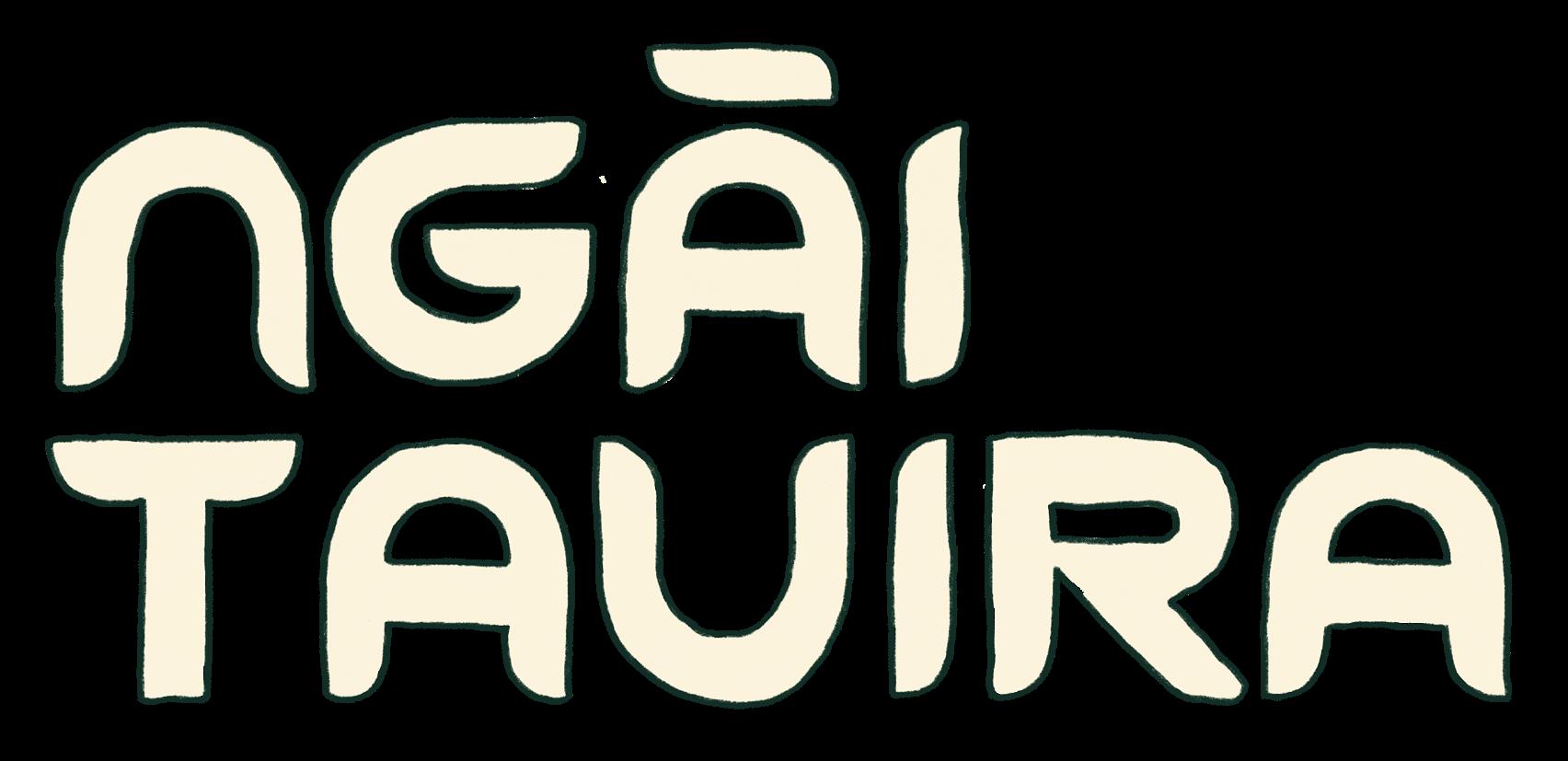

drank bottle of beverage of the yeasty persuasion. The incessant drumming beat of pedestrians echoes through my bedroom window. I find myself contemplating the achievements, the dread, and above all, the love of suffering that quintessentially defines what it means to be a university student. To put it bluntly, being a university student is hard. Therefore, in this edition of the magazine, we're going to explore the myriad life lessons that have so painfully defined my year(s) of study, in the hope that you can navigate your life and academics with a bit less difficulty.
First and foremost, what may seem obvious can, believe me, be an easy trap to fall into. So, number one: Do not go to karaoke night at The Residents on a Thursday evening and stay there until 4 a.m., especially if you have a tutorial at 8 a.m. the same morning. It may be tempting to relax with a sunrise tequila in one hand while being serenaded by the sweet tunes of Mariah Carey, sung by Maia Karohi from Lower Hutt. But trust me, it is not worth it. Choose to go to bed instead.
When choosing tutorial, workshop, and lecture time slots, opt for the ones you realistically will attend, not the ones you aspire to go to. It's very easy to harbour an idealised version of ourselves when deciding which lectures, labs, and tutorials we should attend. Many begin the year with high aspirations, believing this will finally be the year they wake up early for their 8:30 a.m. lectures. If New Year's resolutions have taught me

anything, it's that some things never change. So, set the bar low. Give yourself some flexibility for later in the year when assignments begin to pile up and you find yourself staying up until 2 a.m. writing that last-minute essay, inevitably missing that dreaded morning lecture.
Finally, embrace the resources and communities available to you. If you are Māori, consider joining Ngāi Tauira. As a wise person once said, being a university student is hard, but being a brown one introduces its own set of complexities that only a handful of students will understand. University can feel like a very culturally isolating experience. So whether you're into Te Matatini or Dragon Ball Z, join Ngāi Tauira. Whether you're a kapa haka fanatic or prefer the writings of Oscar Wilde, join Ngāi Tauira. Whether you're a fluent Te Reo Māori speaker or just learning your pepeha, join Ngāi Tauira. A place where you can be authentically and unapologetically yourself. Authenticity allows your academics to flourish.
Thus, as I inch ever closer to that desired word count of 500 words, I can only wish you the best of luck in your endeavours. Do dumb stuff. Learn some stuff. Embrace the journey with all its ups and downs.
Chur.
Mairangi Campbell (Ngāti Porou, Ngāi Tūhoe)
Āpiha Mātauranga (Academic Officer)
page 33 columns
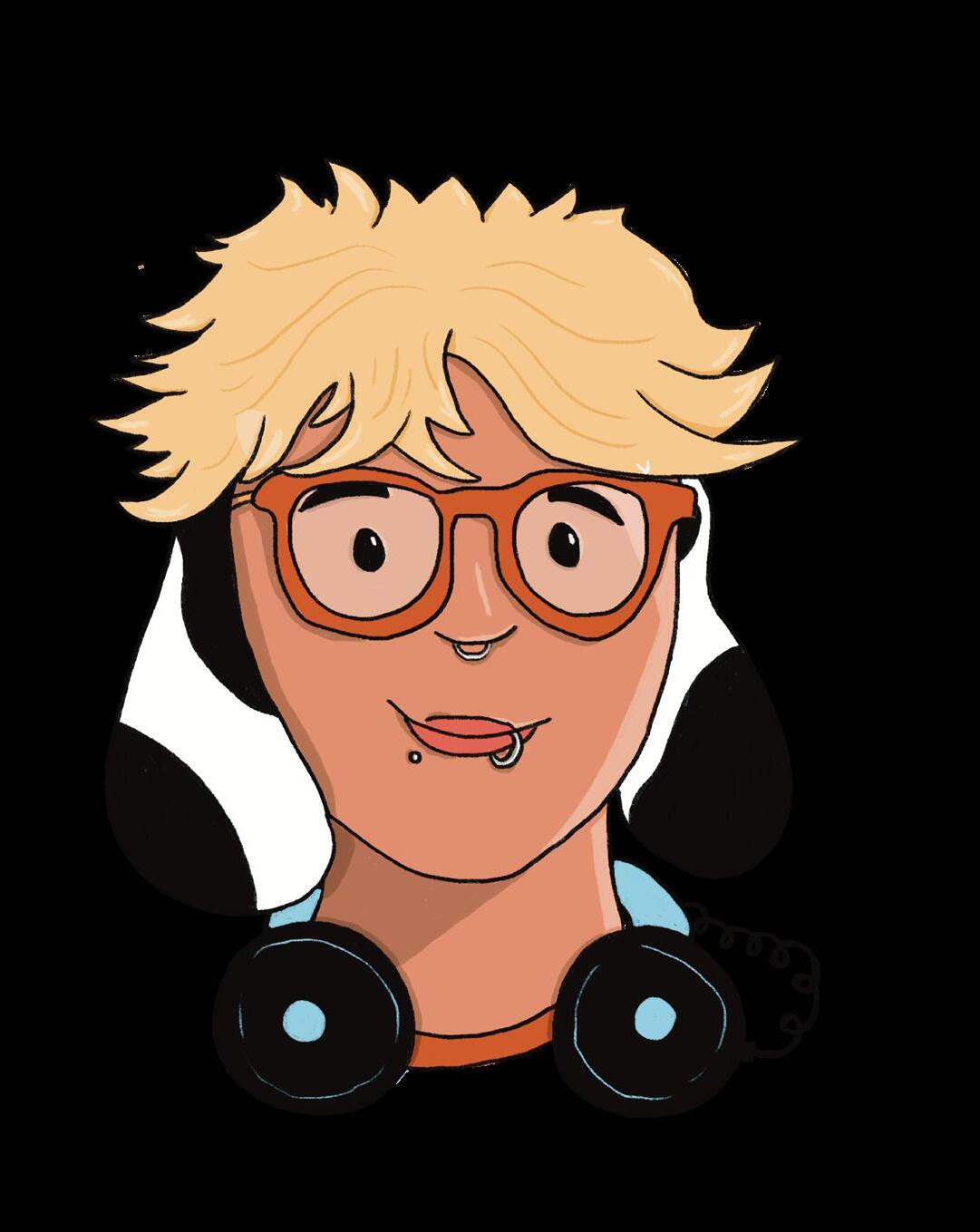

podcasts.
with Speaker of the House Teddy O'Neill (he/it/ia)
Too much homework, not enough time? Get motivated with this week's Salient Podcasts while you try not to think about your endless readings. Tune in this week to listen to hear the Salient gang talk about the Big Donut, Chris Hipkins's opinion on Star Wars, and learn about student advocacy from Brie!
"You know what I do love? Punching jour nalists in the face." - Phoebe, Editor in Chief
Salient Unedited This week, our team banters about podcasts, Saltburn, and the Academic issue of Salient!

"Most reality TV shows disappoint me!" - Chris Hipkins

Arts & Culture This week, Teddy and Phoebe interview the big. Chippy! They discuss Star Wars, Married at First Sight, and whether or not Chris would sacrifice the current government to the zombies....

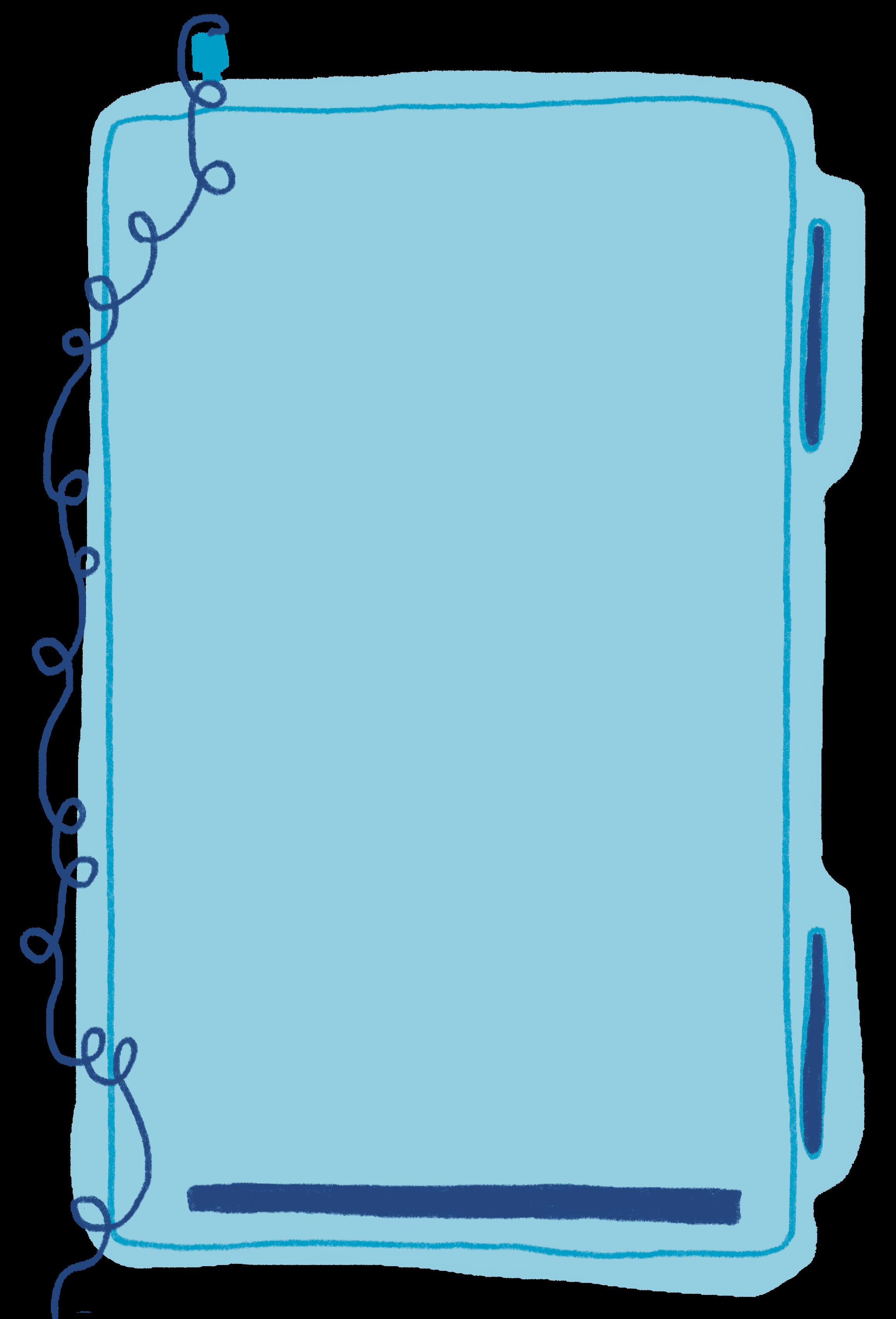
"So. What's a student advocate?"
VUWSA Unedited Teddy talks to one of VUWSA's student advocates, Brie, about how she can help!

podcasts kōnae ipurangi
page 34
Find all of our podcasts on Spotify!

Defrosting colonisation in summer
words by Mauatua Fa'ara-Reynolds (she/they)
Heat cages flesh, I am a thawing carcass stumbling along the city’s sweaty tarmac skin.
Roads end dead, I am lost among rotten paths, stacked and laid on top one another.
The eyes are here.
There are eyes here.
Sand sinks mobility, I am thrust onto ancient shores, And blinded by imported Grimaces that steadily besiege.
Water licks limbs, and on this beach, one hundred years melt from my body — the dusky maiden returns.
Les yeux sont ici.
Il y a des yeux ici.
It is here that you feast
Upon our black pearl girls
It is here that we lay helplessly, Parce qu’il n’y a pas des yeux ici. Especially when you fuck us, missionary. Liberté, égalité, fraternité
For all the bleached beach bikini babes.

page 35 poetry & prose auahatanga
Mauatua Fa'ara-Reynolds (she/they) is a Tahitian-Norfolk Islander student at VUW, studying Cultural Anthropology and Pacific Studies. She currently works at


How many elements are in the periodic table?
What company was originally called "Cadabra"?
How many faces does a Dodecahedron have?
Queen guitarist Brian May is also an expert in what scientific field?
Aureolin is a shade of what color?
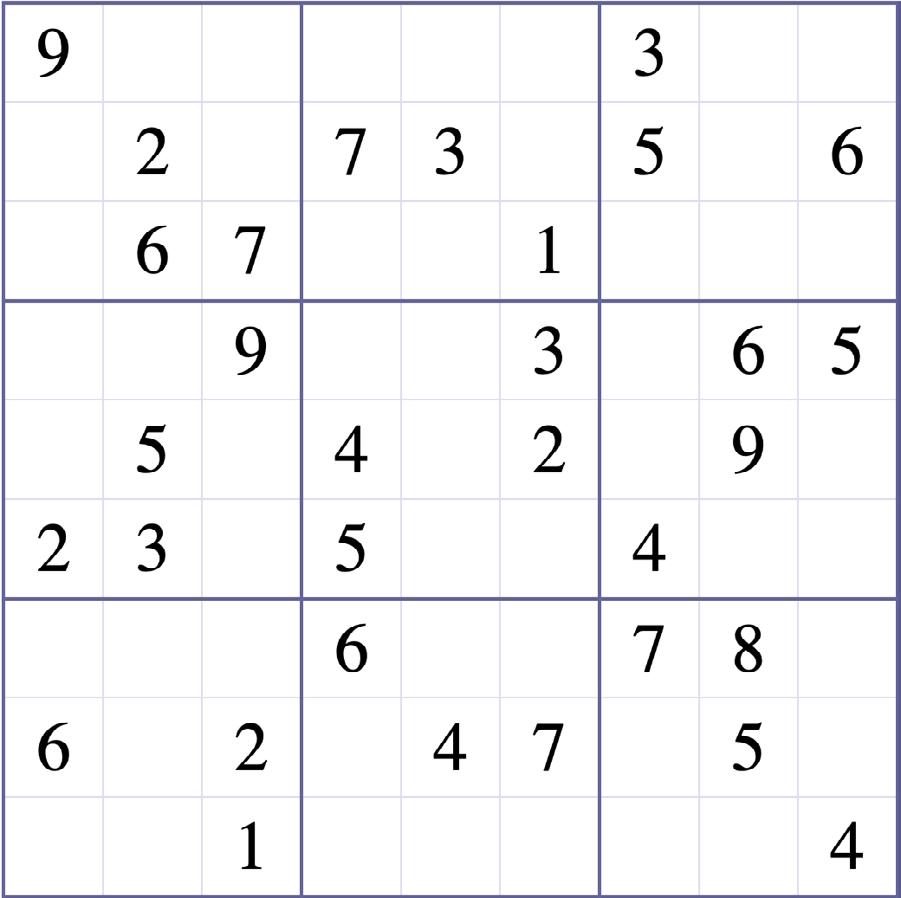
How many birds can you find in this issue? Flick through the magazine, count them all and send your answer to letters@salient.org.nz and be in to win a prize!
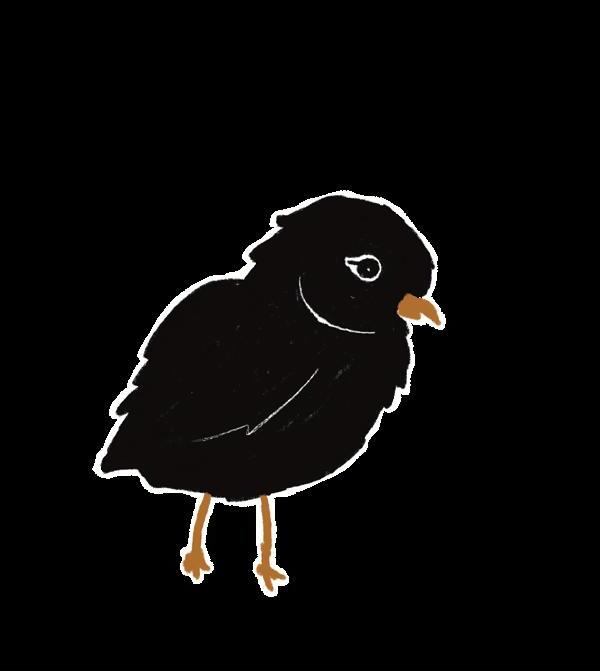
page 36 PUZZLES everybody's favourite page WEEKLY
01 02 03 04 05
QUIZ
QUIZ ANSWERS 01. 118 ; 02. Amazon ; 03. 12 ; 04. Astrophysics ; 05. Yellow
bird search

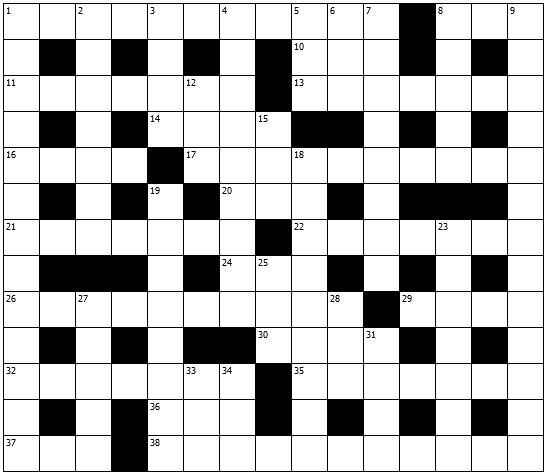
DOWN
1. Set day that most workers get off (6,7)
2. Song sung at bedtime (7)
3. Sea-based military branch (4)
4. Like a view that is accurate and true to life (9)
5. Title used by some married women (3)
6. Consume (3)
7. Moving in a body of water (8)
8. Less common (than) (5)
9. ‘Invasion of the ___’, 1978 sci-fi film; second track on Radiohead’s ‘In Rainbows’ (4,9)
12. Given name of James Bond creator Fleming (3)
15. Surname of New Zealand comedian Paul, known for hosting 7 Days (3)
18. Place a dash between two words (9)
19. Suspicious circumstances (4,4)
23. Type of vessel flute known for its association with ‘The Legend of Zelda’ (7)
25. Precursor genre to reggae (3)
27. Synthetic polymers used in both clothing and for industry (5)
28. Canine (3)
31. Interested in other peoples’ business (4)
33. Word that can follow ‘pale’, ‘ginger’ and ‘brown’ to make beverages (3)
34. What he owns is __ (3)
CROSSWORD MADE BY BLAKE
ACROSS
1. Words or phrases like kayak, racecar, or ‘sit on a potato pan, Otis’ (11)
8. Steal violently (3)
10. Uncooked (3)
11. Country with the capital La Paz (7)
13. Mixed (7)
14. Ivy League university in New Haven, Connecticut (4)
16. Cinema offering with a very large screen (4)
17. Bad dreams (10)
20. Word that can precede ‘milk’, ‘bean’ and ‘sauce’ (3)
21. Upper part of a barn (7)
22. Figure in Greek mythology who opened a box of troubles (7)
24. Slang suffix meaning approximately (3)
26. Like a country or place with no coastline (4-6)
29. Informer, snitch (4)
30. Author not known (4)
32. 1968 Tom Jones song; woman who knows what it’s like in New York City? (7)
35. Take great pains over (7)
36. Surname of legendary boxer Muhammad (3)
37. Japanese currency (3)
38. Recent past (11)
WORD SCRAMBLE
How many words (of three letters or more) can you make from these letters (according to the Scrabble UK dictionary)?


Good: 12
Very Good: 15
Excellent: 20+





puzzles panga
C R I E
L ISSUE 02 Crossword solution C
WORDPLAY
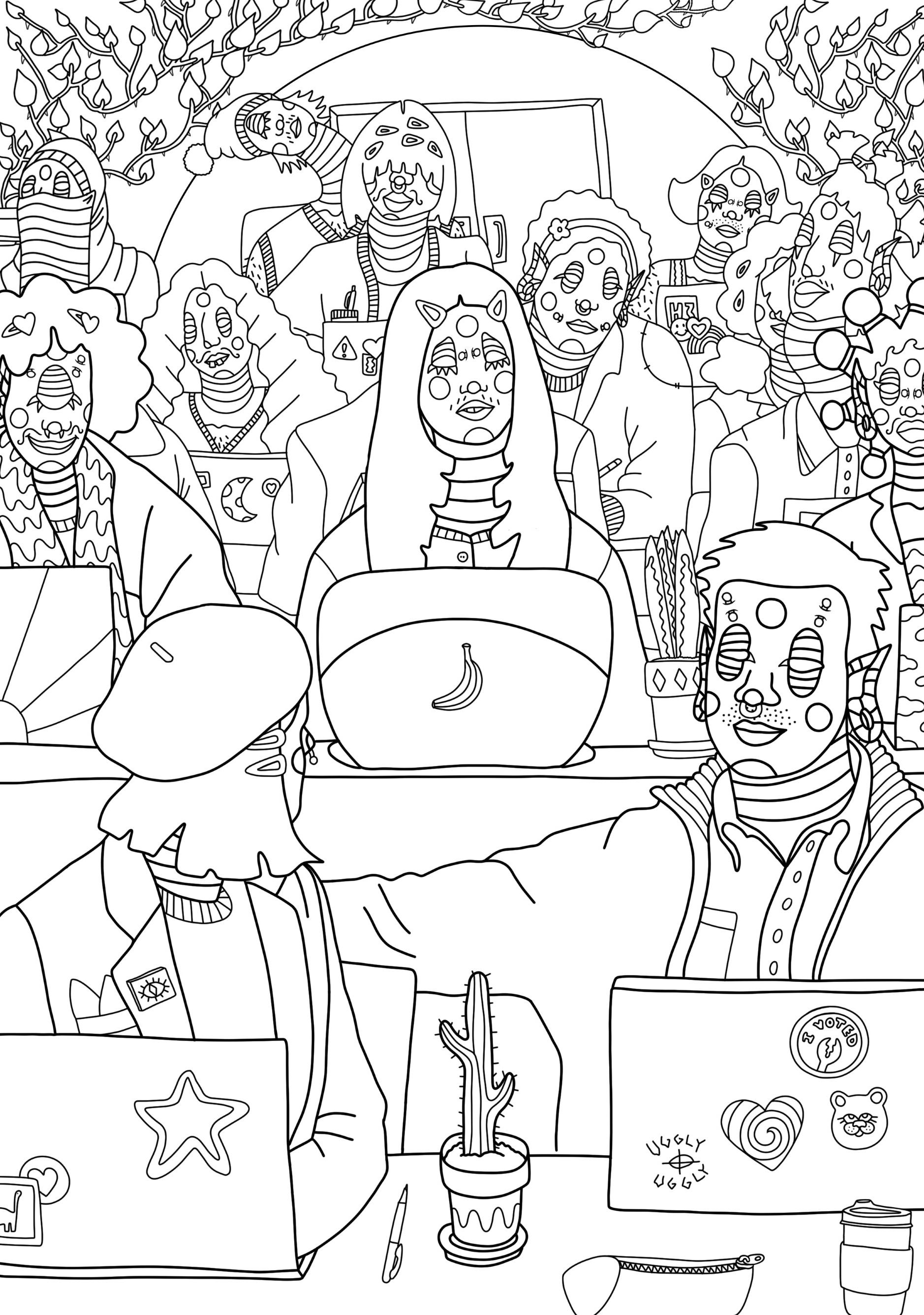
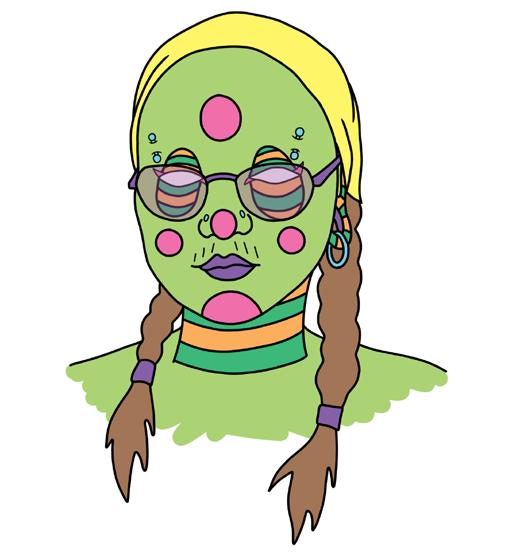
Hey, I'm Jess
the artist behind UGGLYUGGLY. I'm 23, an Aussie, and I love celebrating uniqueness. In my art, I tell stories through gender-fluid characters framed by lush nature in trippy, psychedelic scenes. Come, dive into the vibrant world I create and see more on the @UGGLYUGGLY Instagram
page 38
Salient 2024

page 39
Third Row: Ngan Dang (she/they, Staff Writer Intern) ; Monisha Dahya (she/her, Podcast Intern) ; Oogway (Teddy's cat) ; M&M (Ashleigh's cat) ; Bird of the Week
Second Row: Phoebe Robertson (she/her, Editor) ; Te Huihui Tran (he/him, Te Ao Māori Co-Editor) ; Ashleigh Putt-Fallows (she/her, Te Ao Māori Co-Editor) ; Jamie Clumpas (he/any, Contributing Writer) ; Guy van Egmond (he/him, Contributing Writer) ; Jia Sharma (she/her, Staff Writer) ; Mauatua Fa'ara-Reynolds (she/they, Staff Writer) ; Henry Broadbent (he/him, Sub-Editor)
Front Row: Teddy O'Neill (he/it/ia, Speaker of the House) ; Ava O'Brien (she/her, Distributor) ; Ethan Rogacion (he/him, News Co-Editor) ; Dan Moskovitz (he/him, Chief Reporter) ; Will Irvine (he/him, News Co-Editor) ; Kate Seager (she/her, Designer)
Submit a comic: designer@salient.org.nz
This week's comic artist: @actuallylululemon
VUWSA EXECUTIVE
VUWSA EXECUTIVE BY-ELECTION
POSITIONS AVAILABLE:
ACADEMIC VICE PRESIDENT
20 HOURS A WEEK
POSTGRADUATE OFFICER
NEW ROLE THIS YEAR
Nominations are open from 11th - 13th March for the VUWSA 2024 By-elections! Nominate yourself to be on the Student Executive now: vuwsa.org.nz/nominations
Nominations close: 4pm Wed 13th March 2024
CLUBS & ACTIVITIES OFFICER
10 HOURS A WEEK
Voting is open from 18th - 20th March for the VUWSA 2024 By-elections. Have your say on the 2024 Student Exec by voting at: voting.vuwsa.org.nz/login
Voting closes: 11:30am Wed 20th March 2024
STUDENT SAY
VOTING
18.03.24 BY-ELECTION RESULTS WILL BE ANNOUNCED 20TH MARCH AT THE VUWSA AGM
OPENS











 Phoebe Robertson Editor in Chief
Phoebe Robertson Editor in Chief
































































































